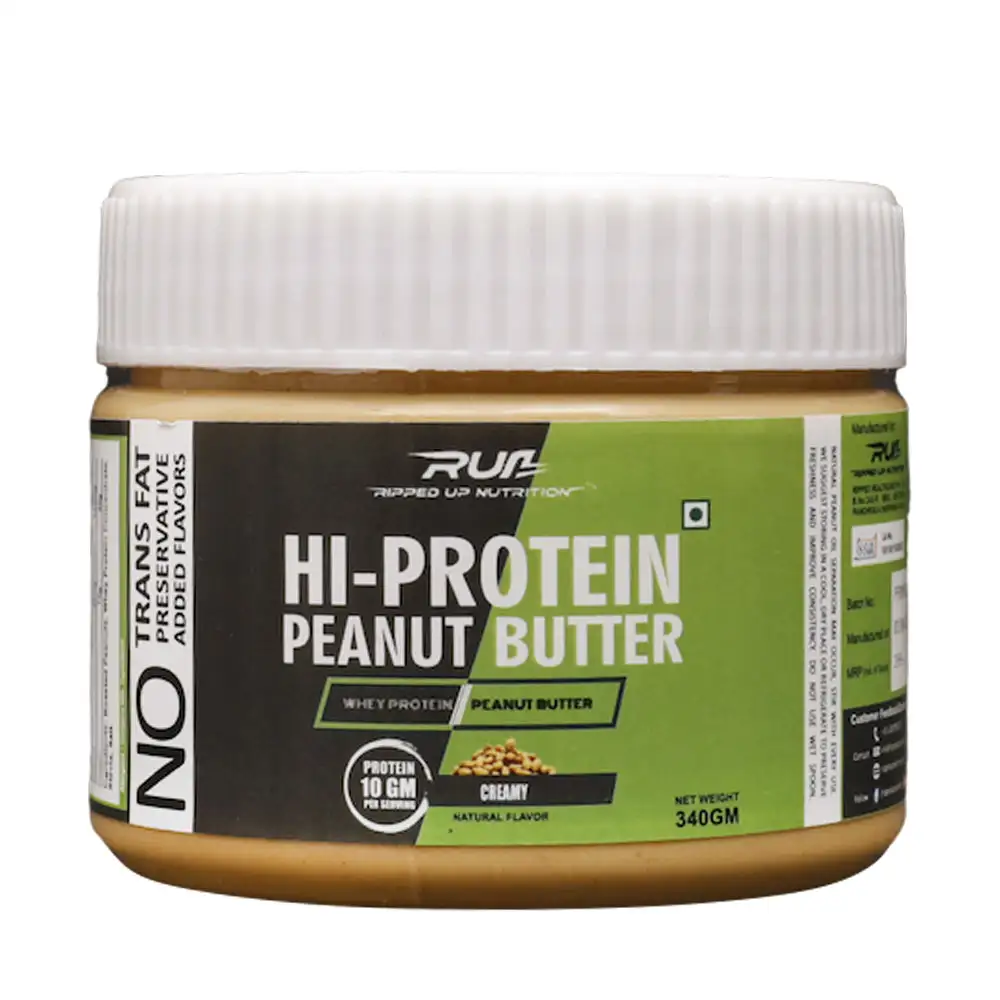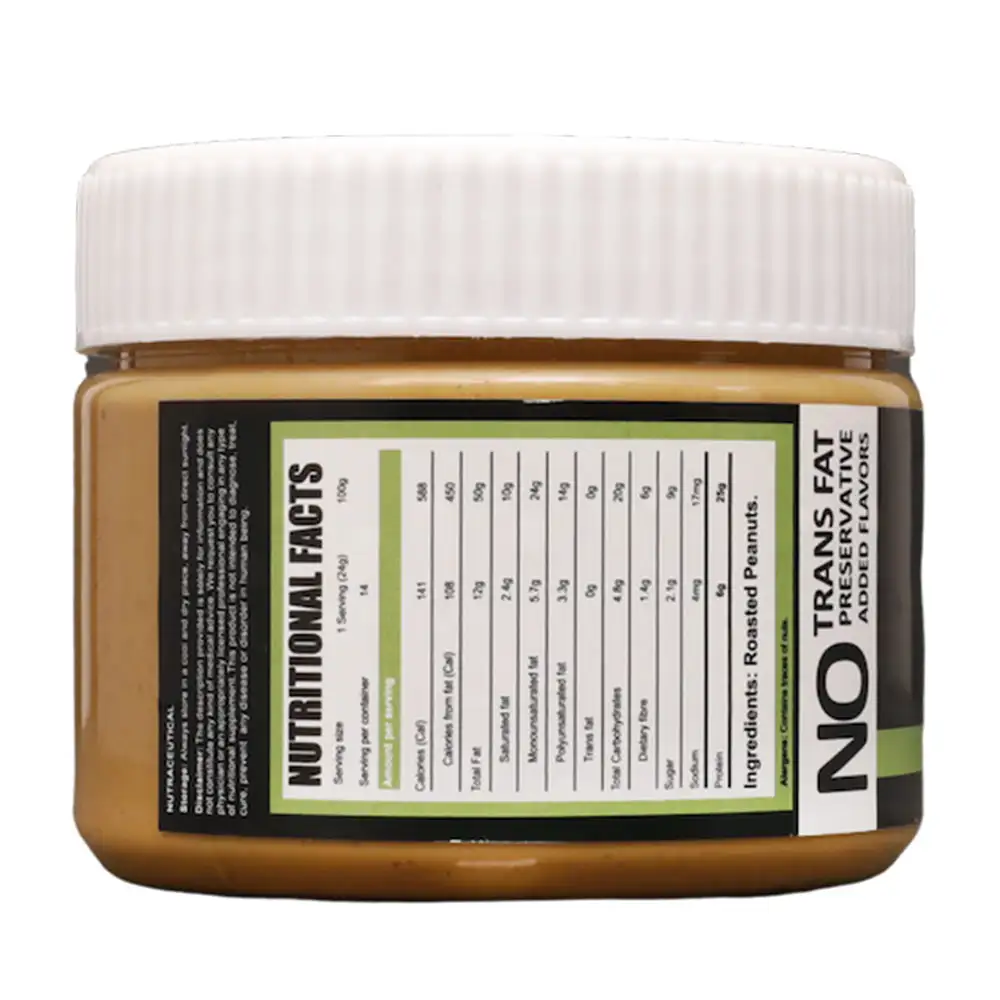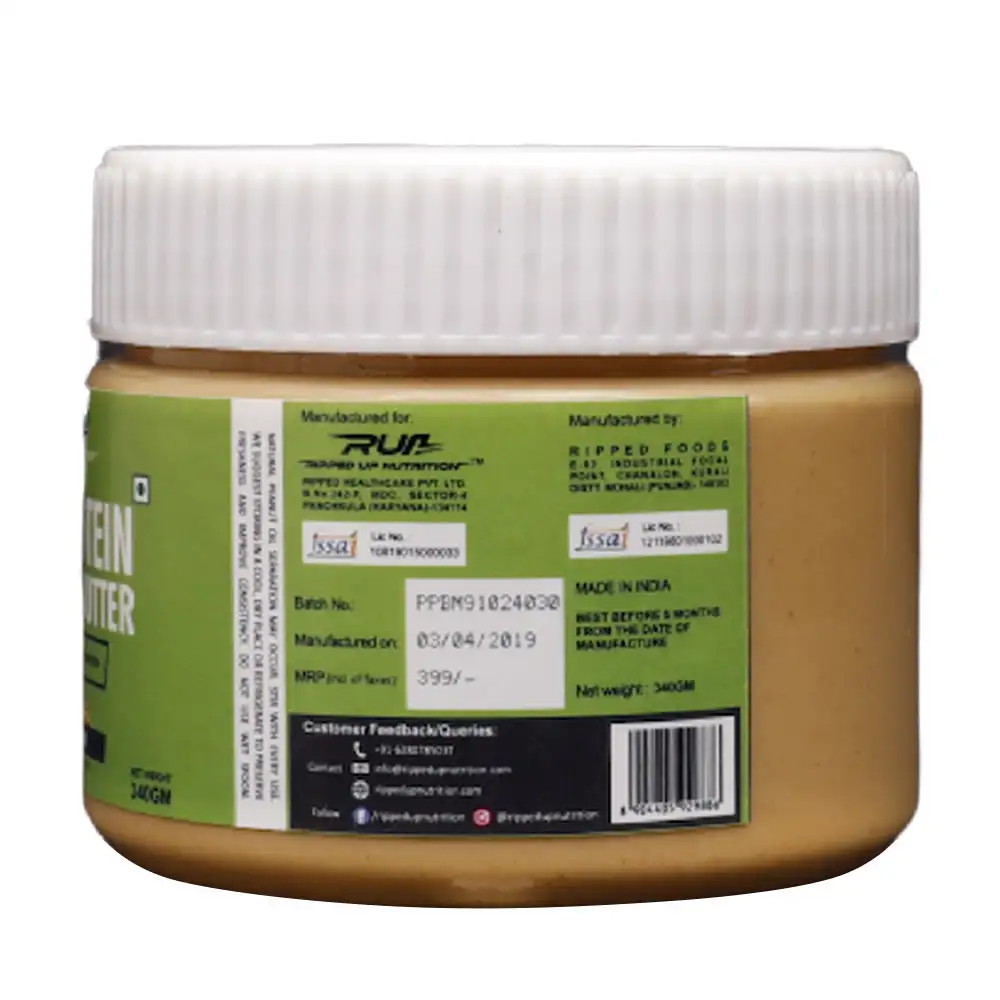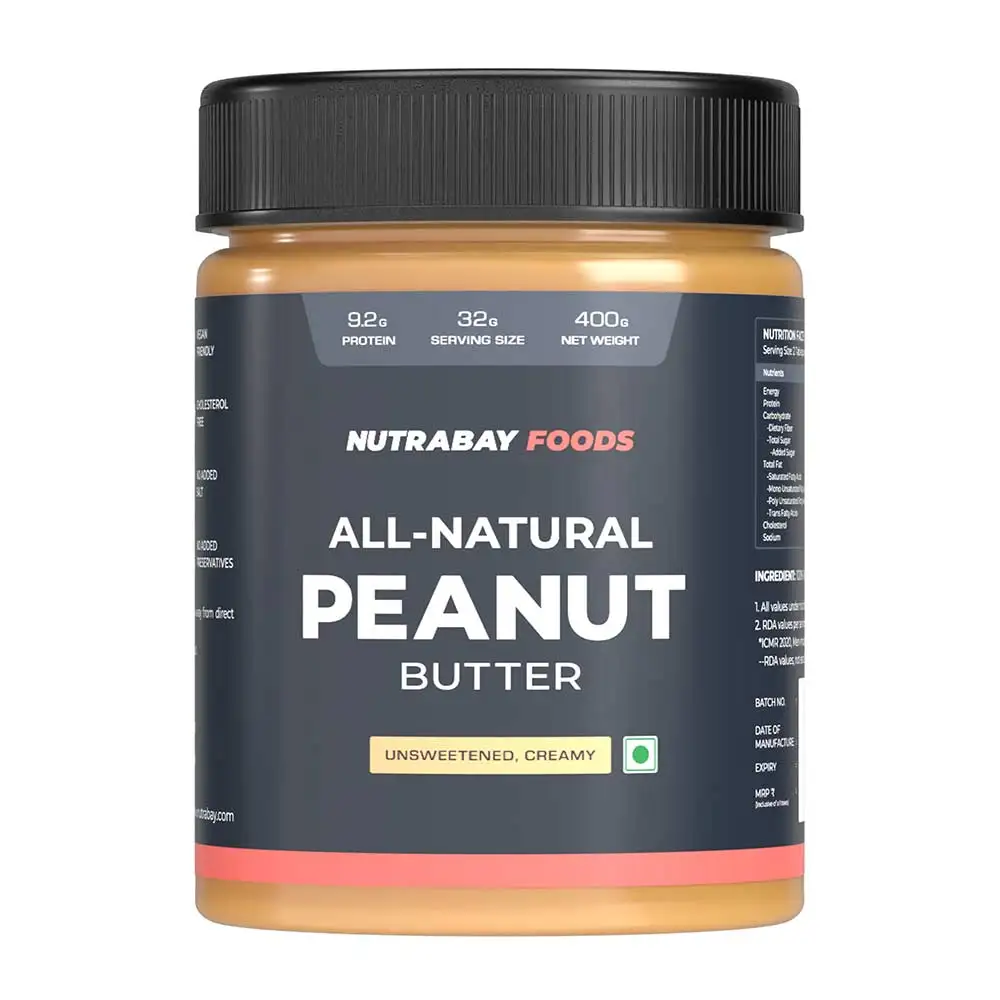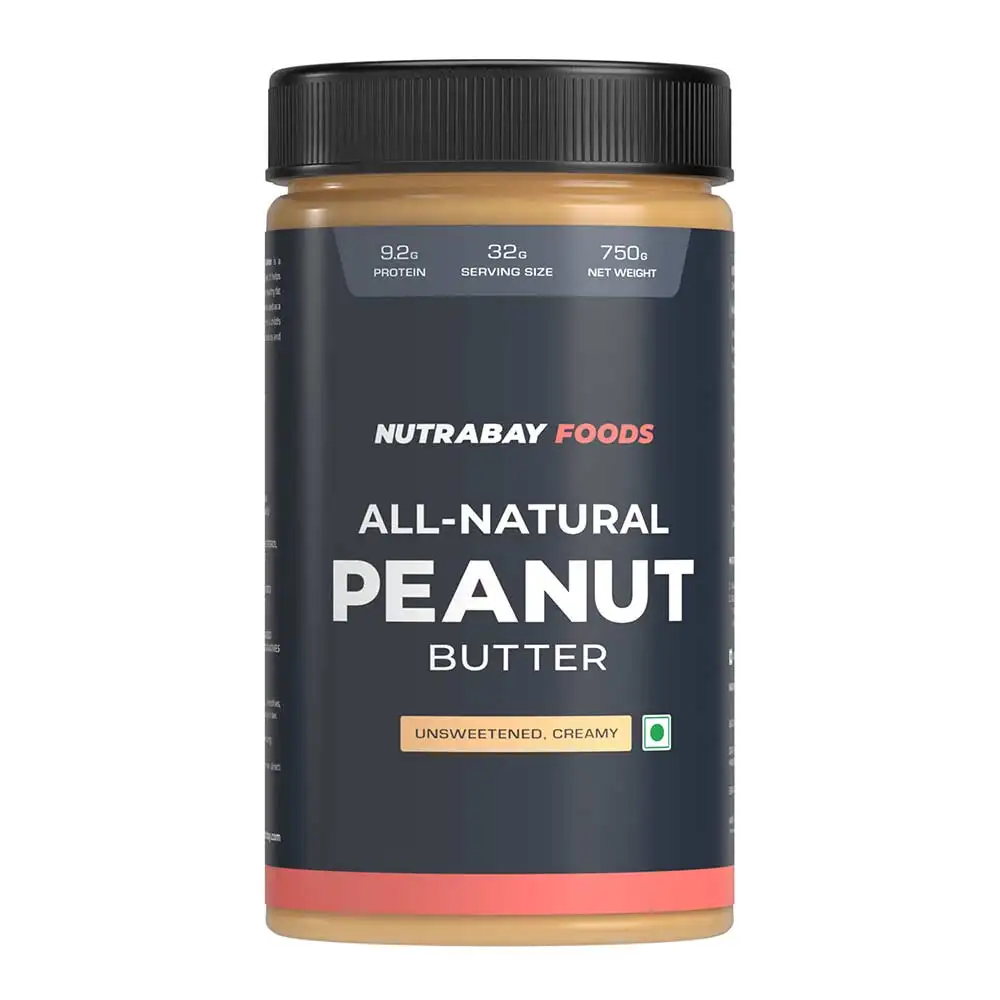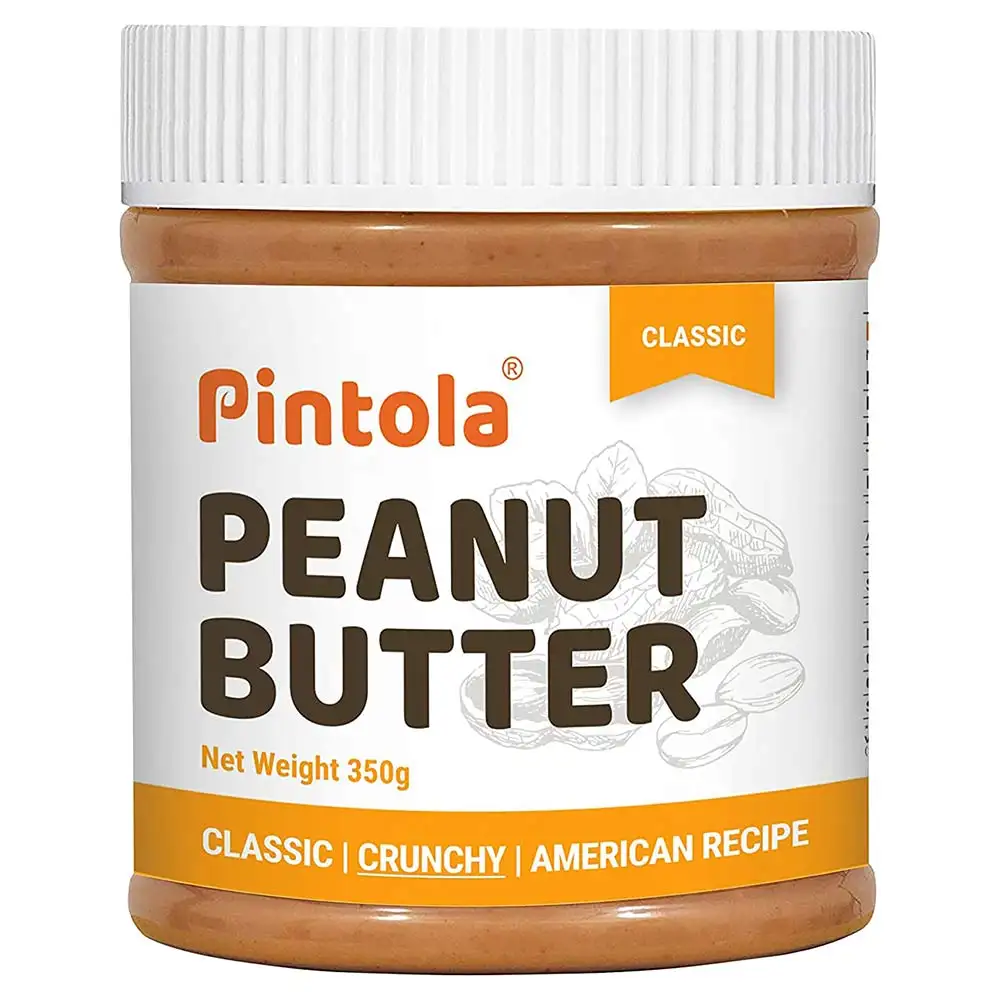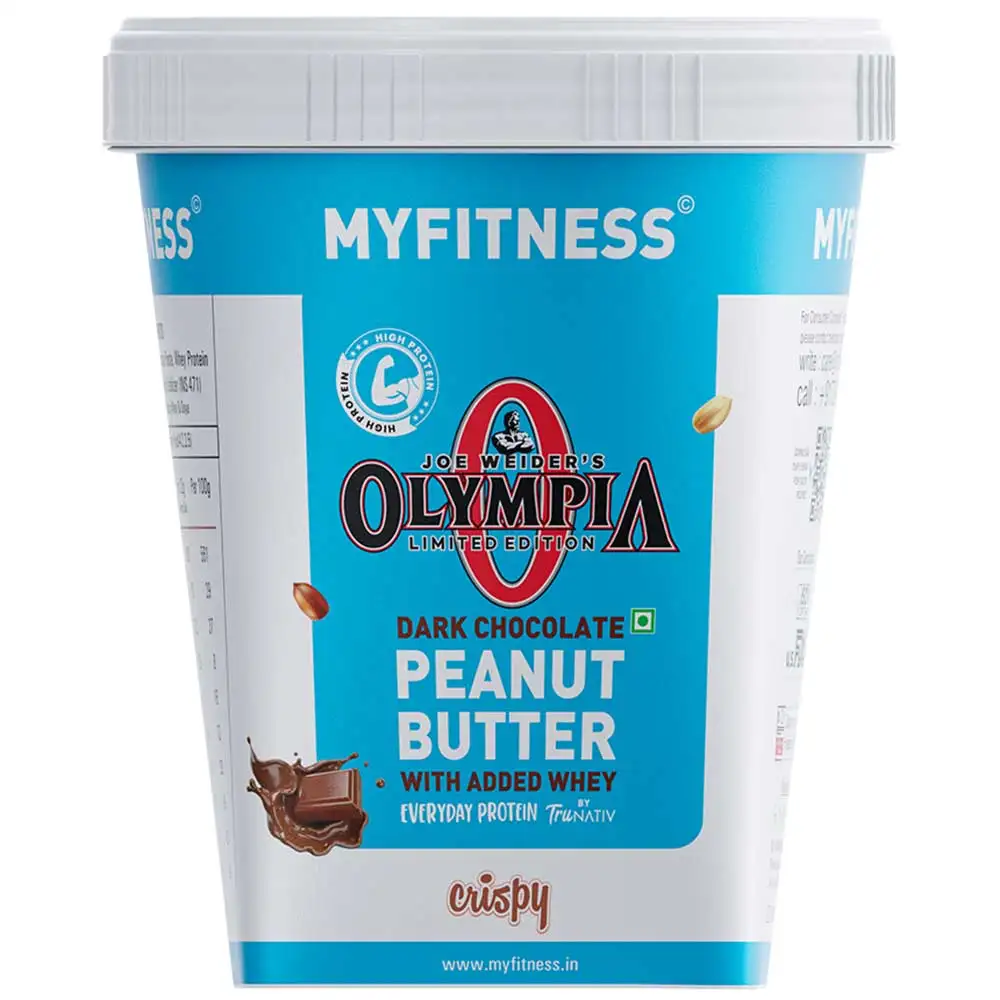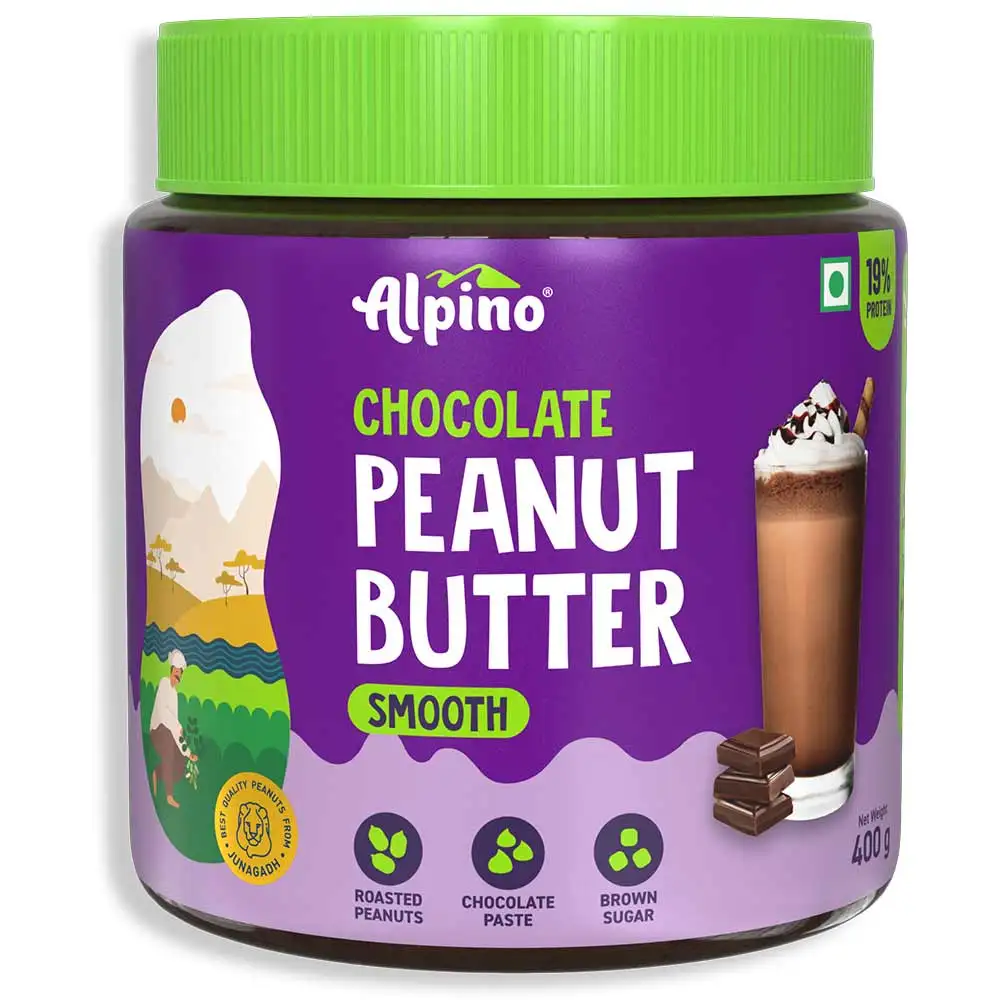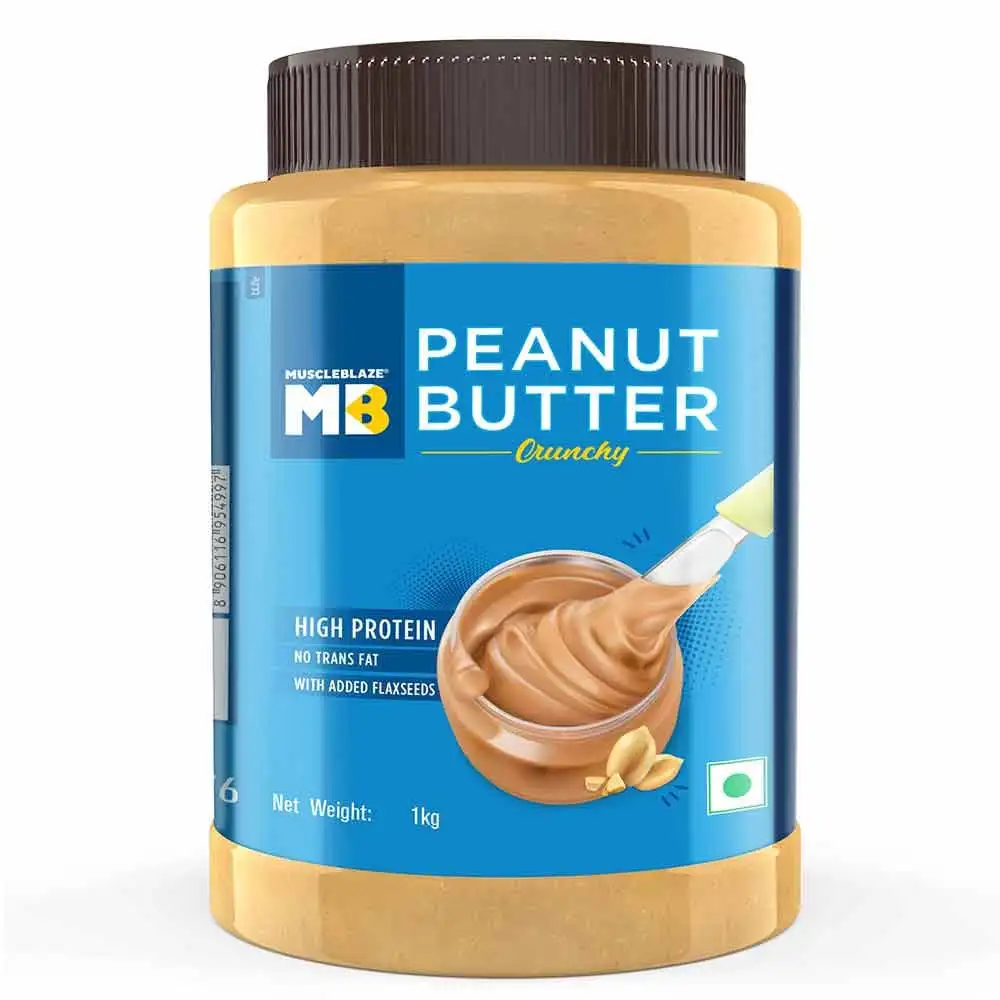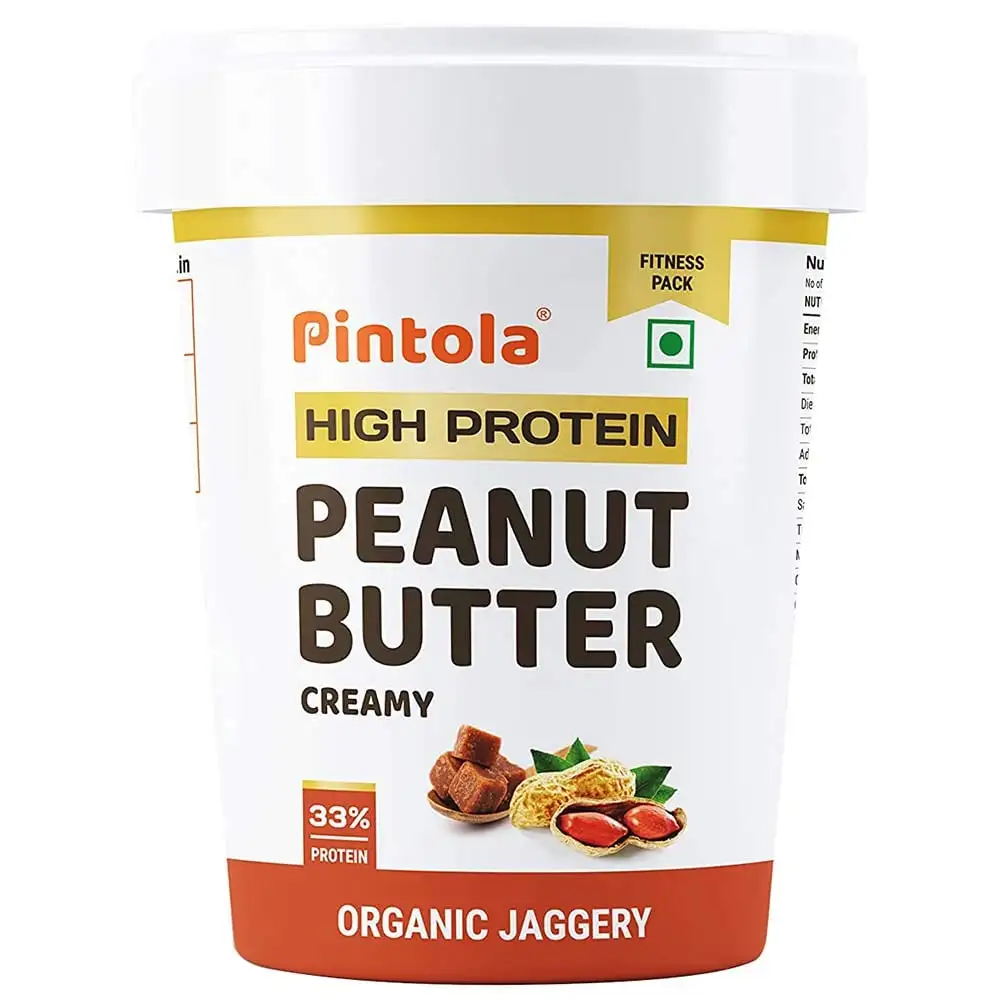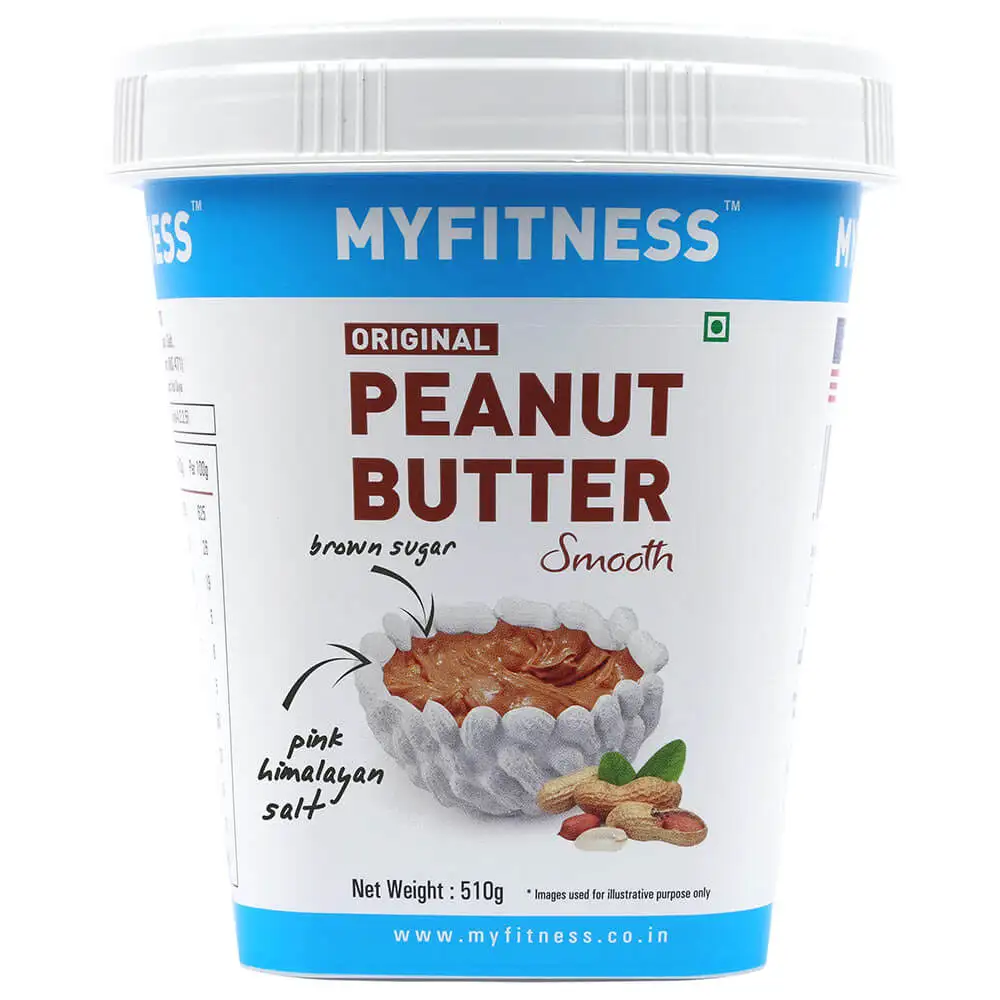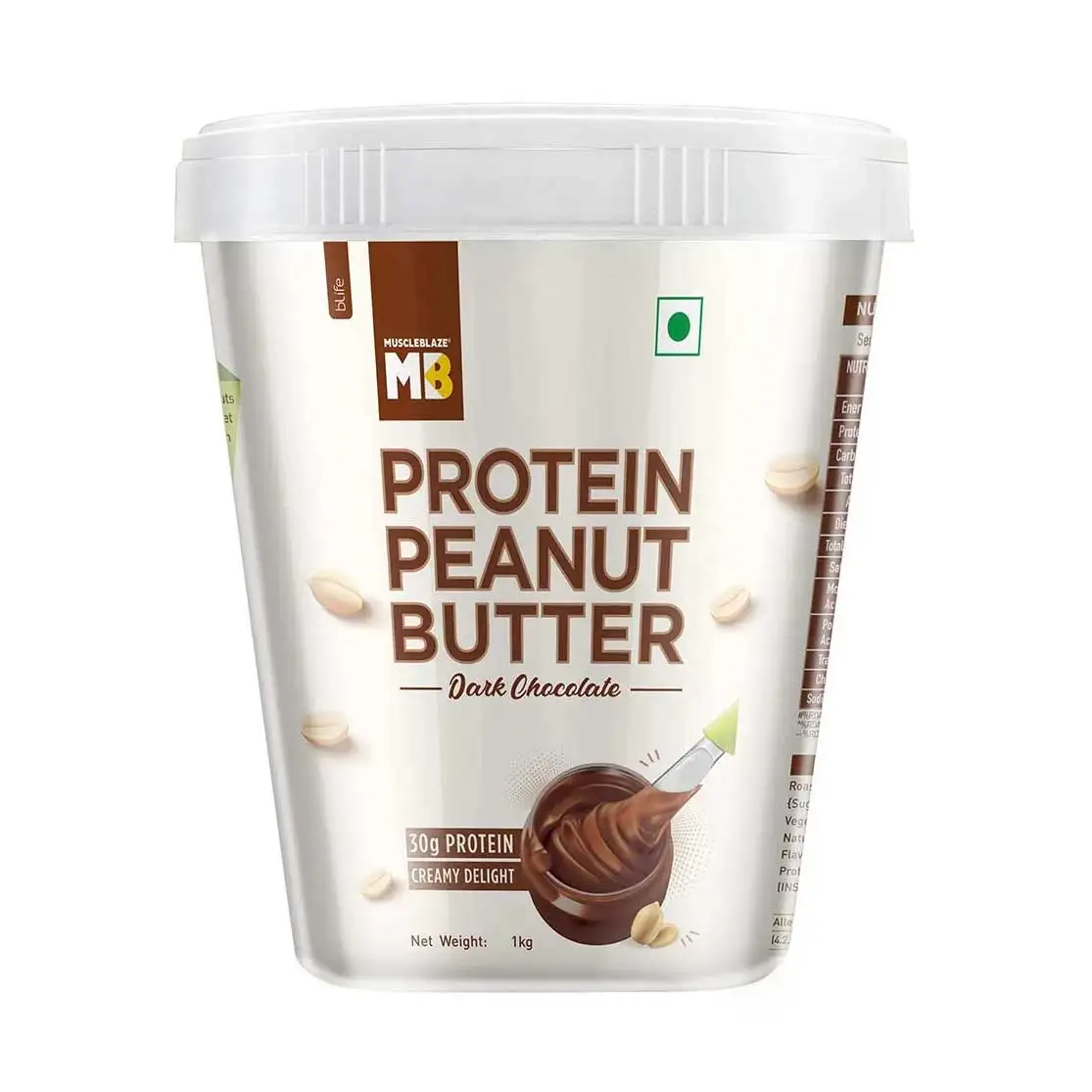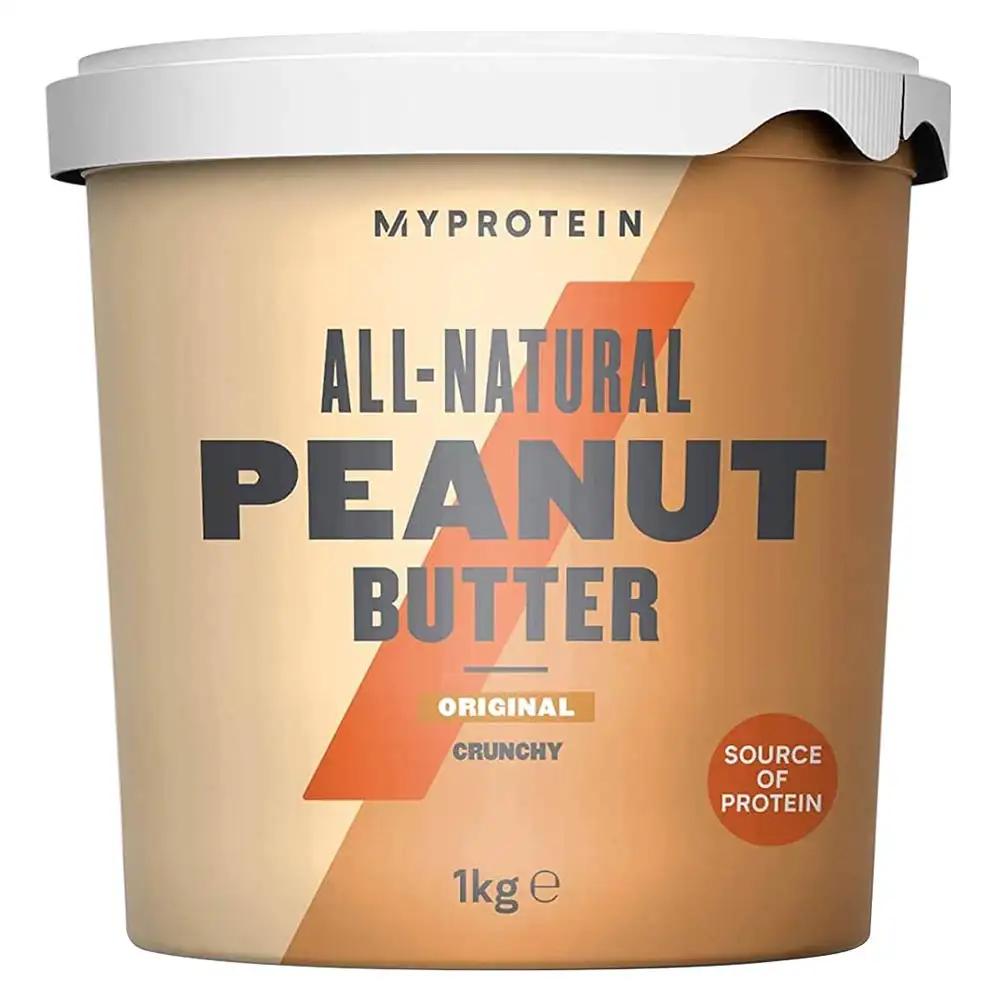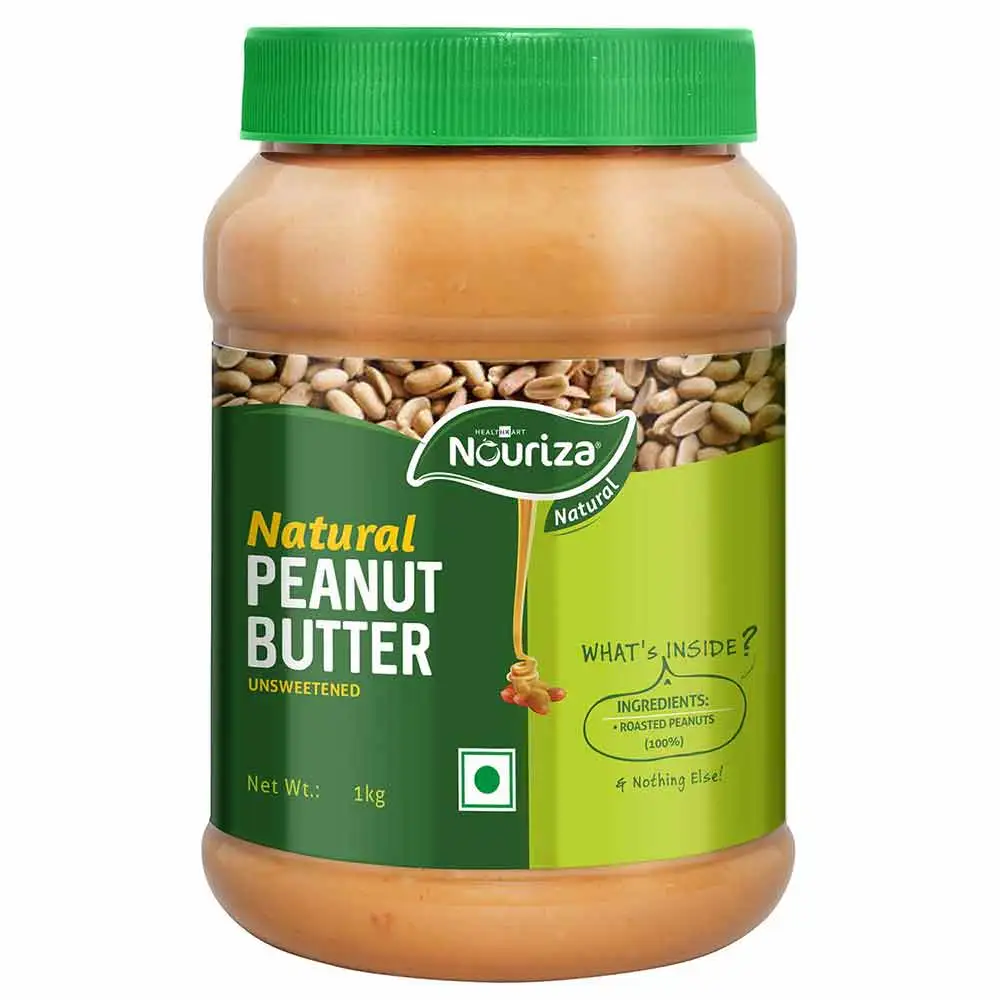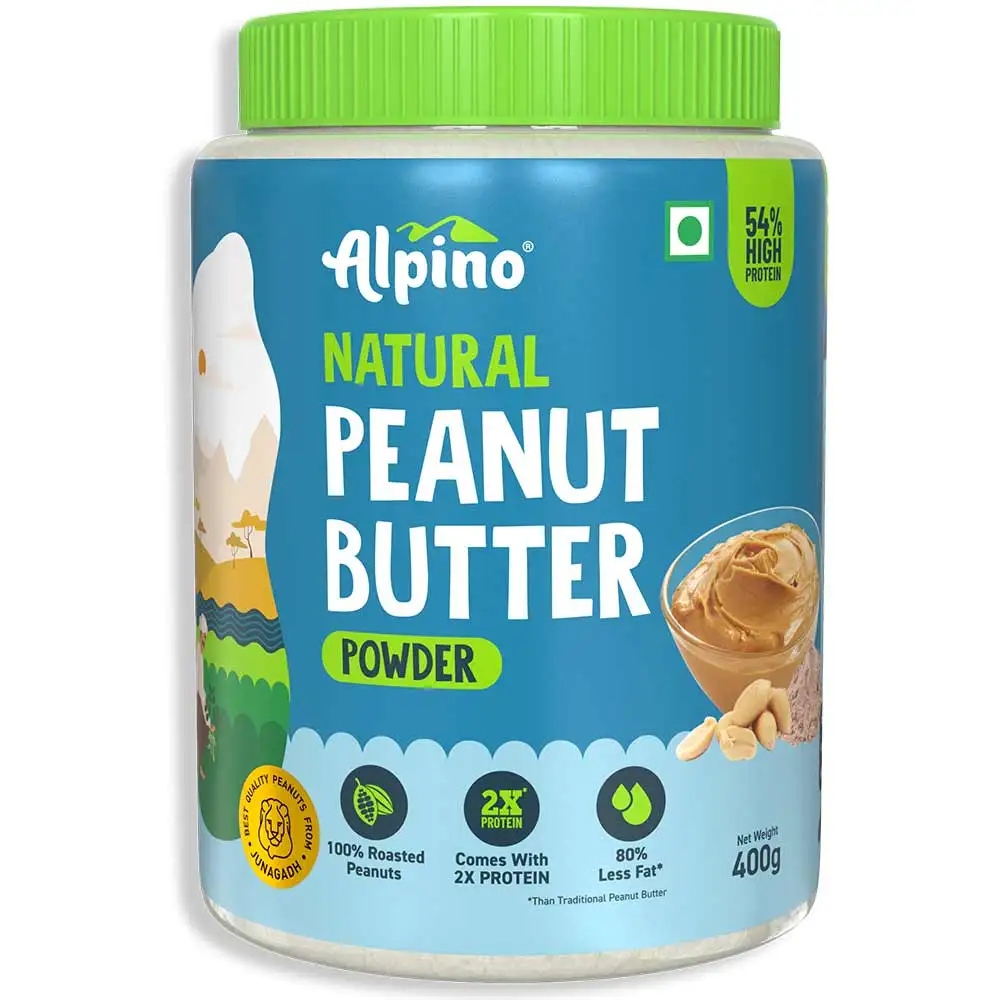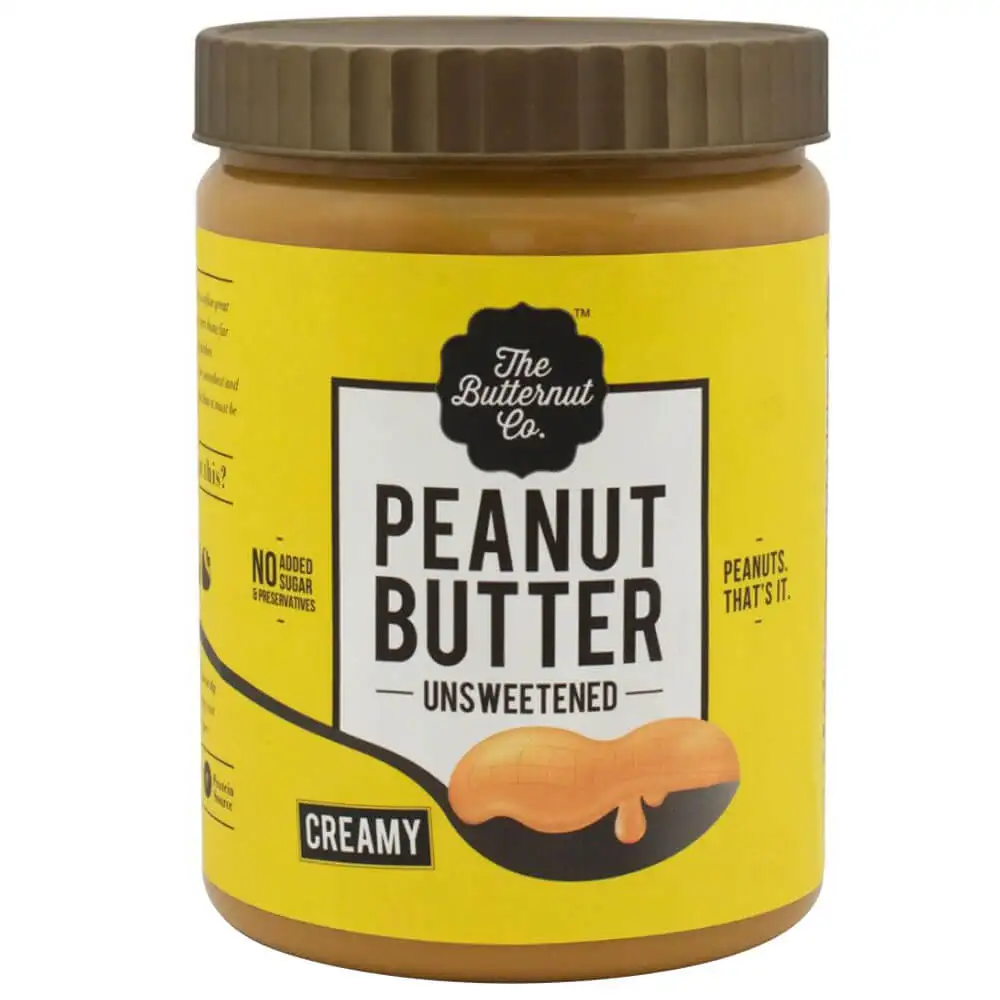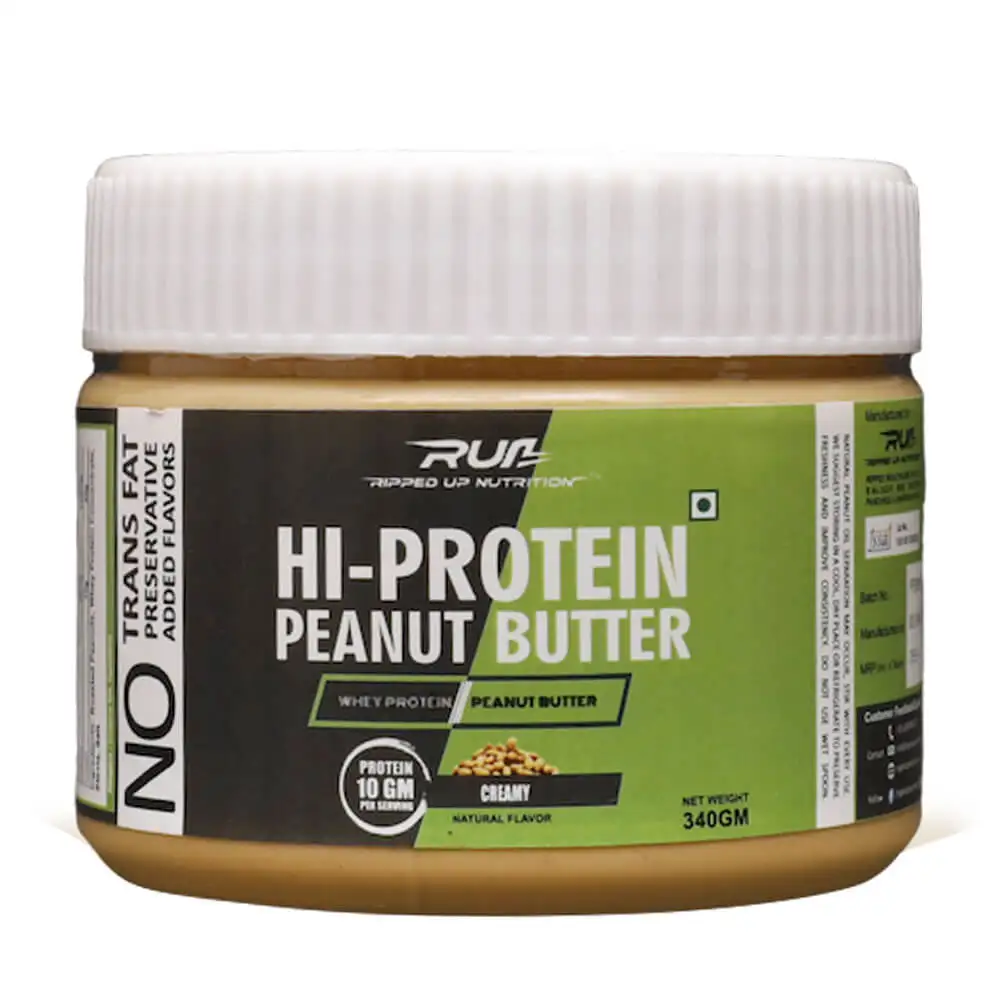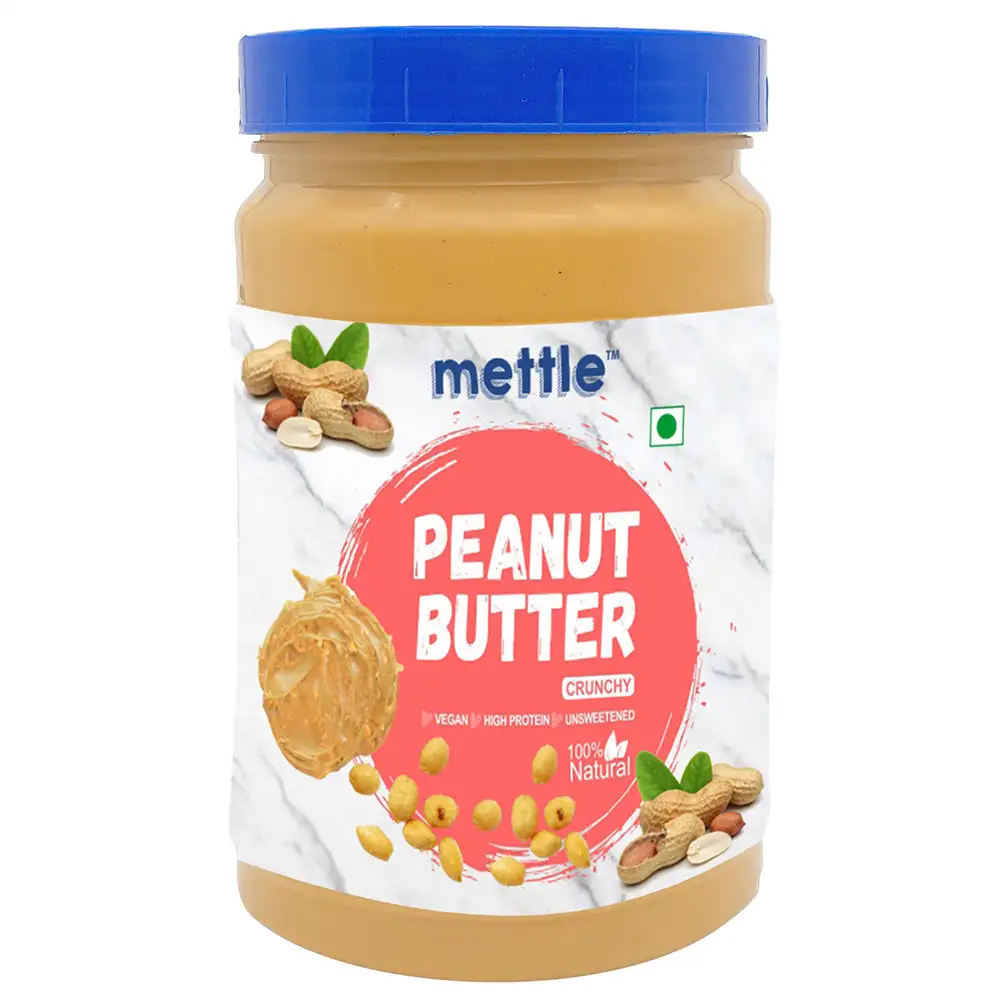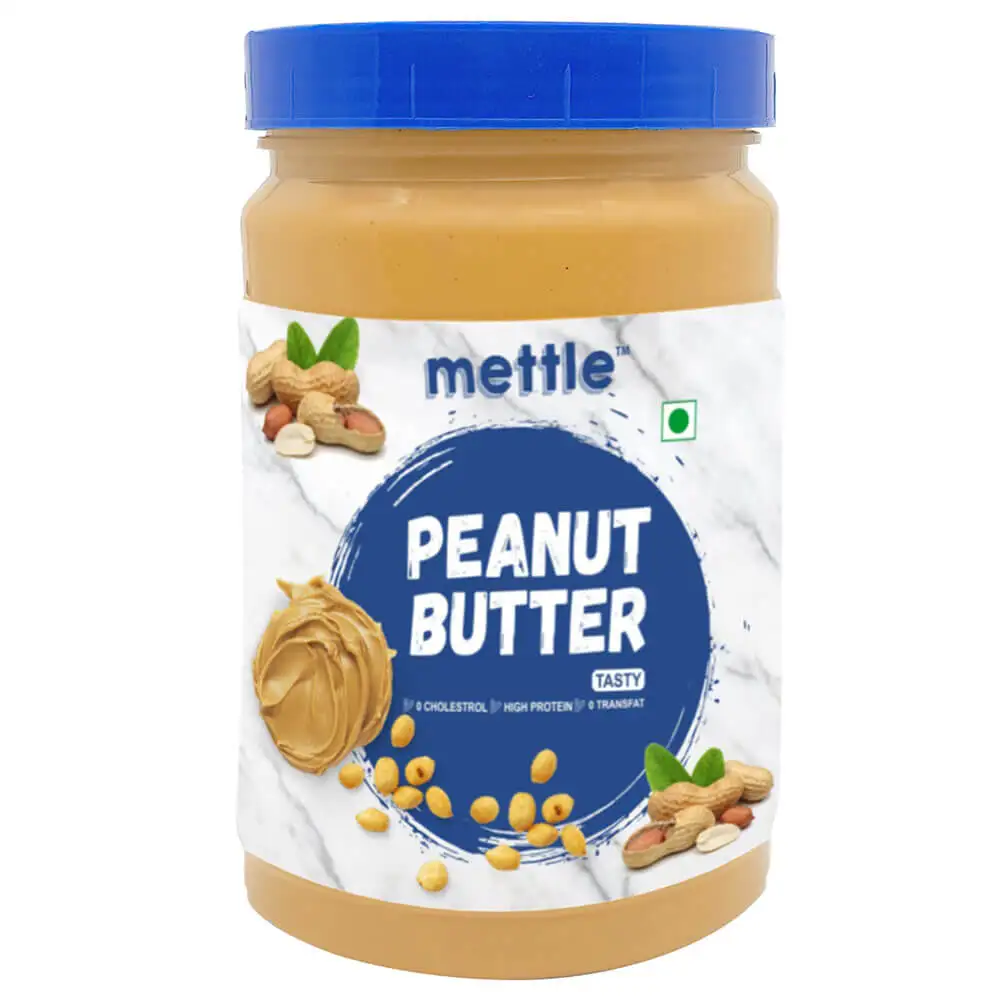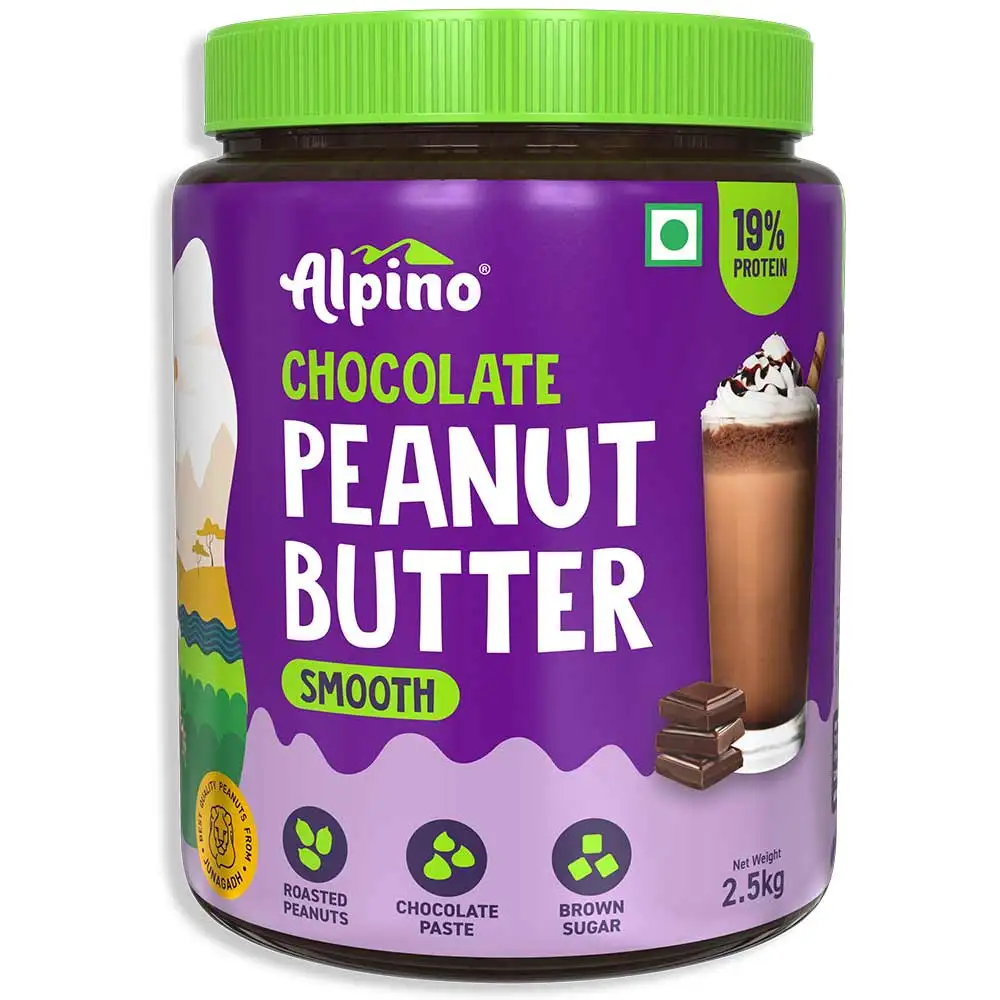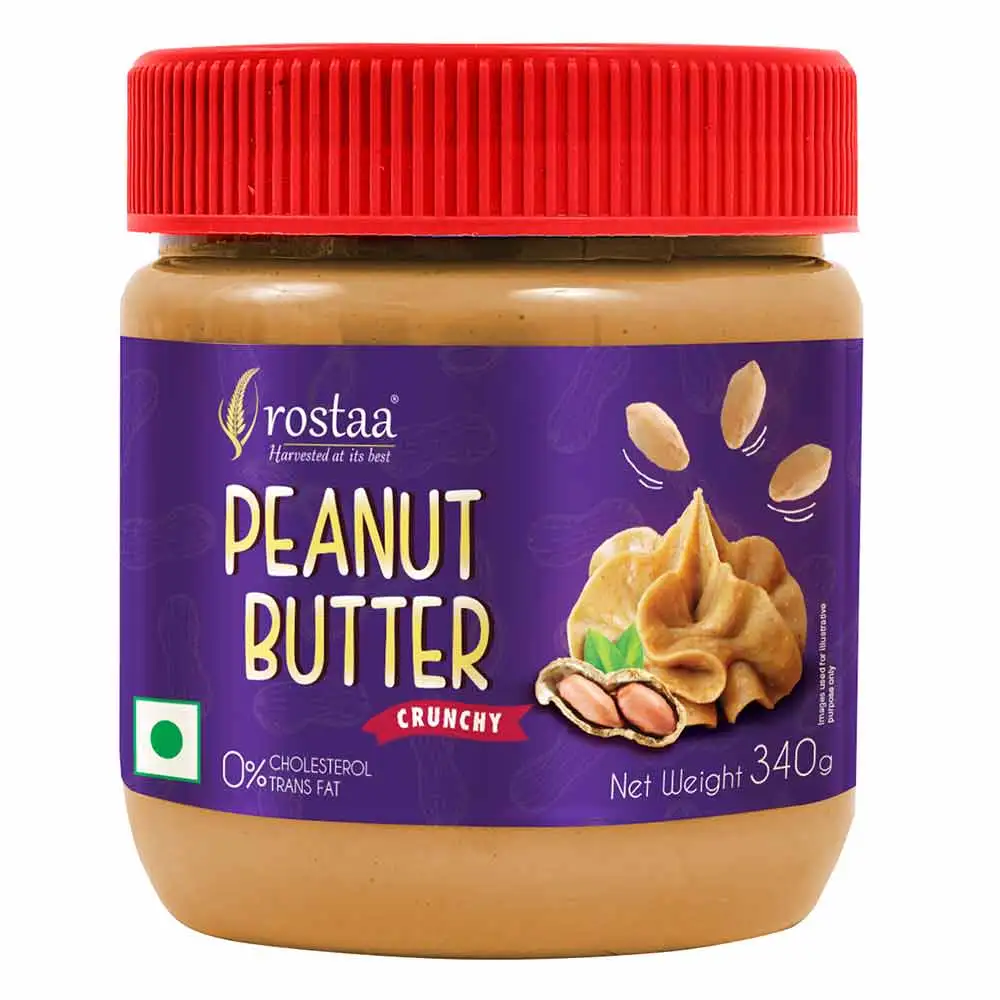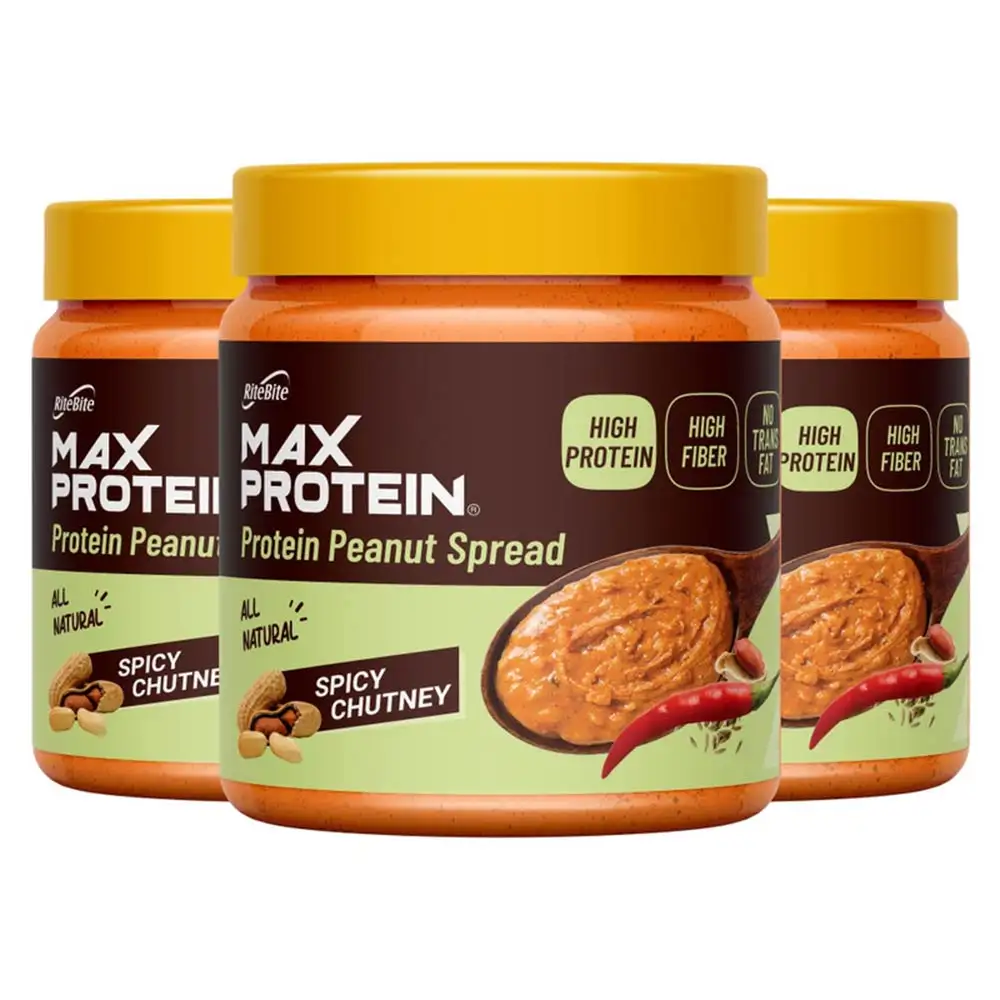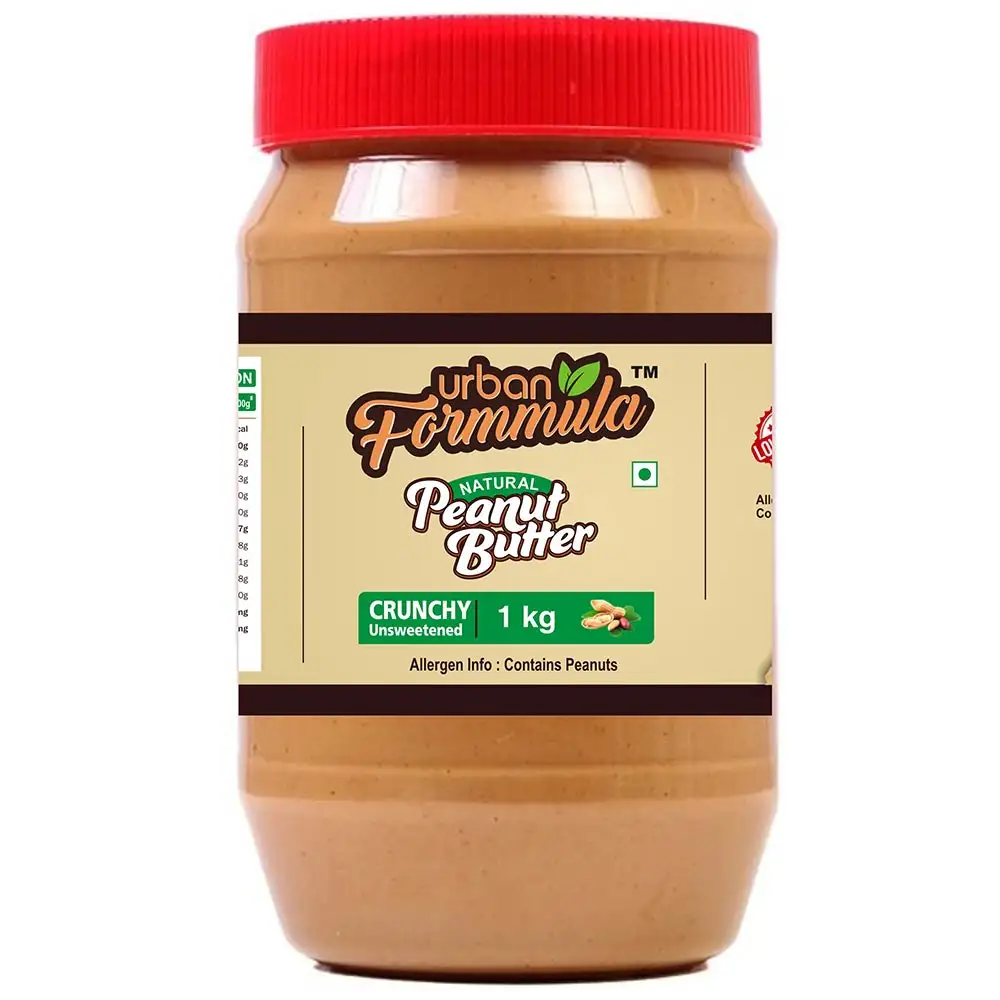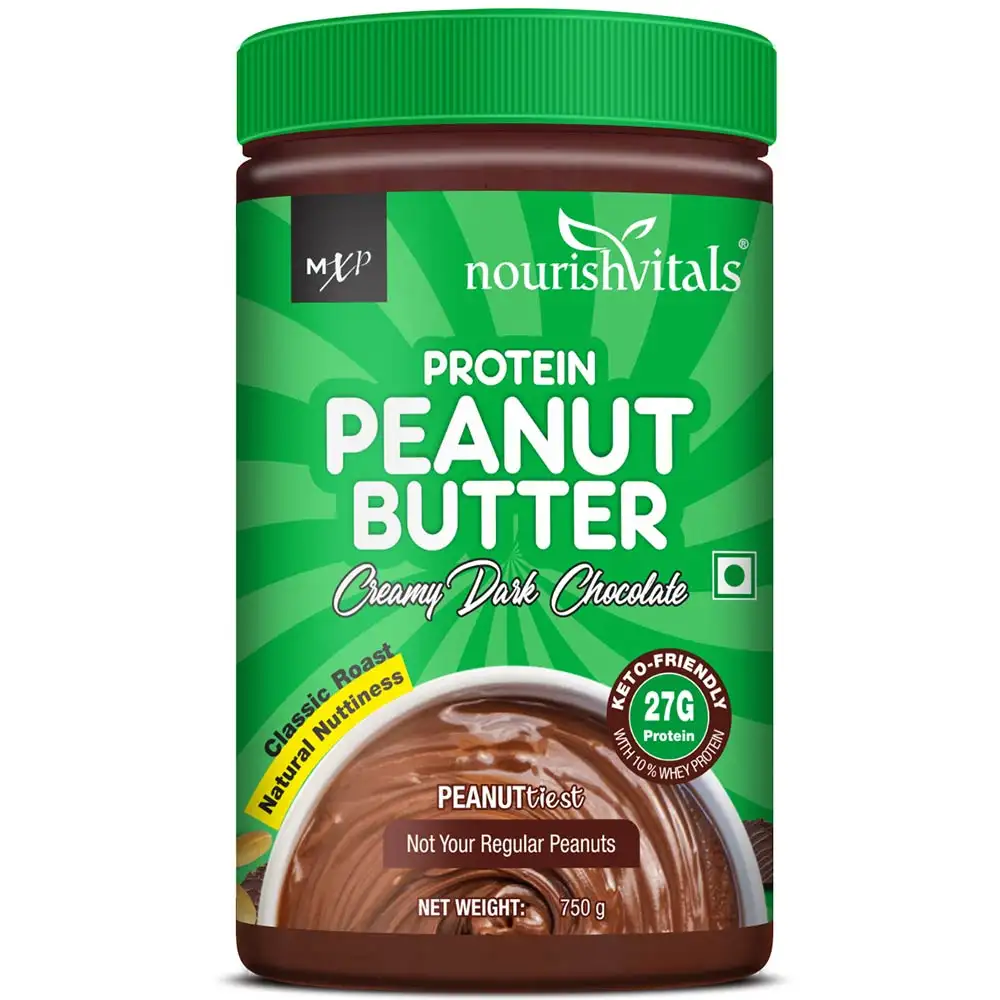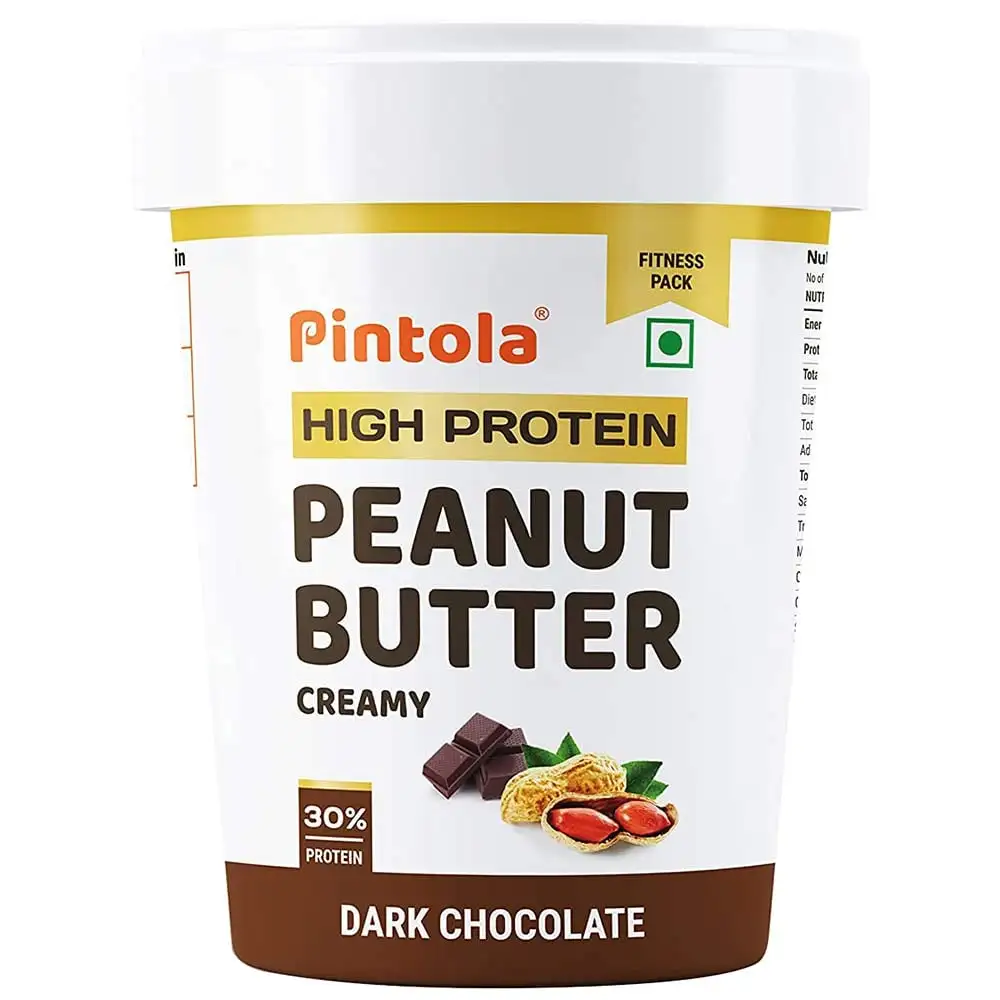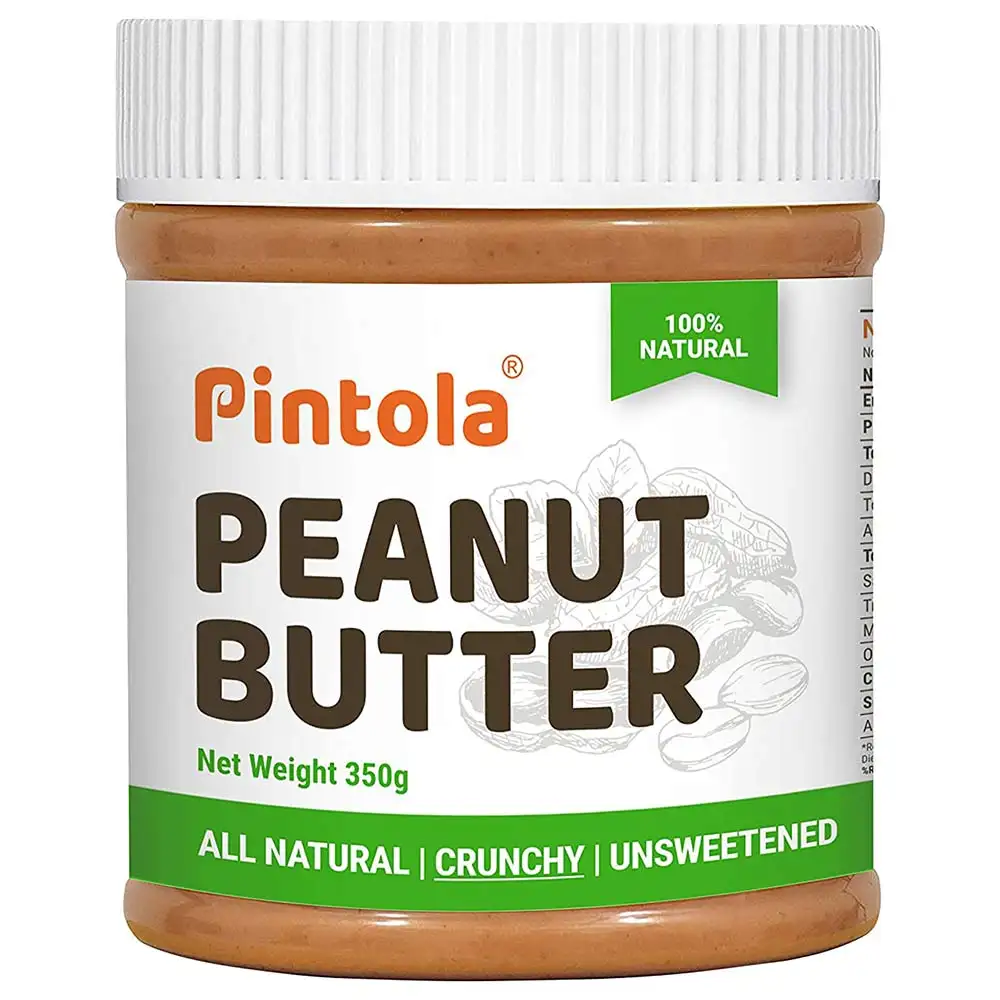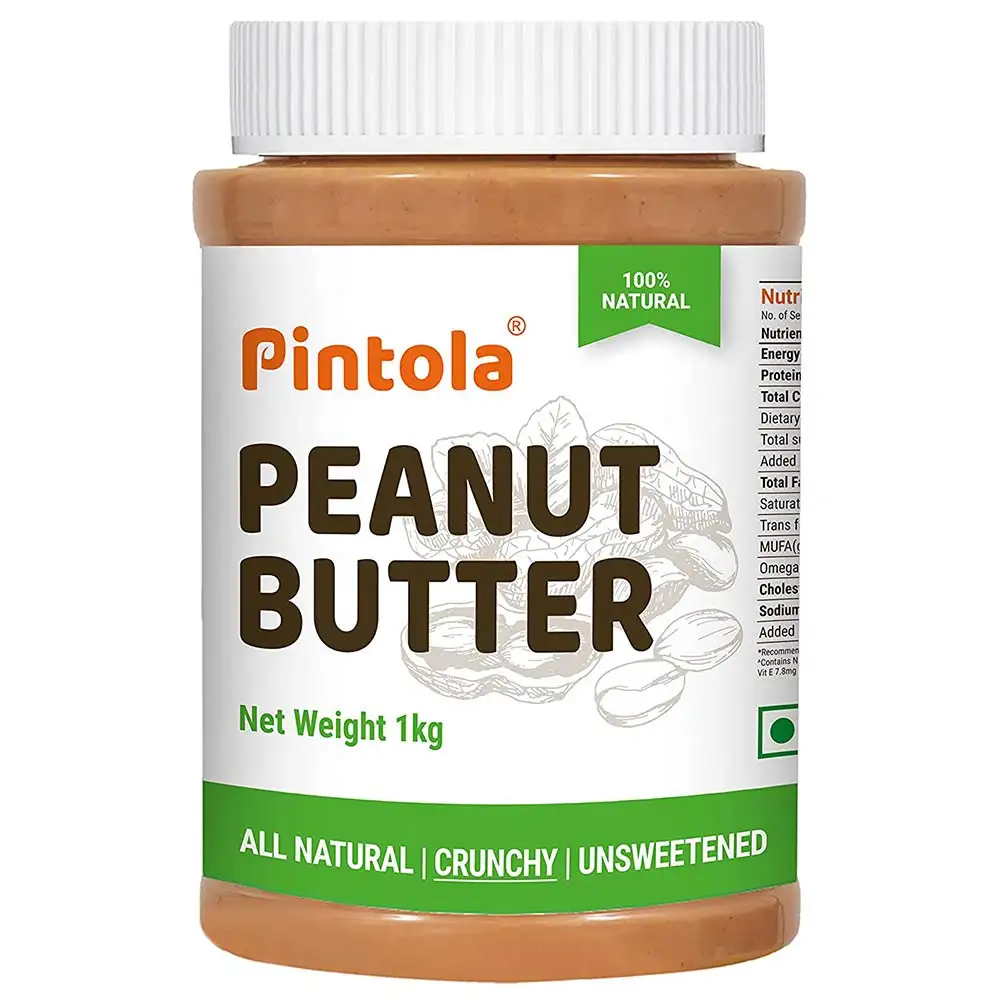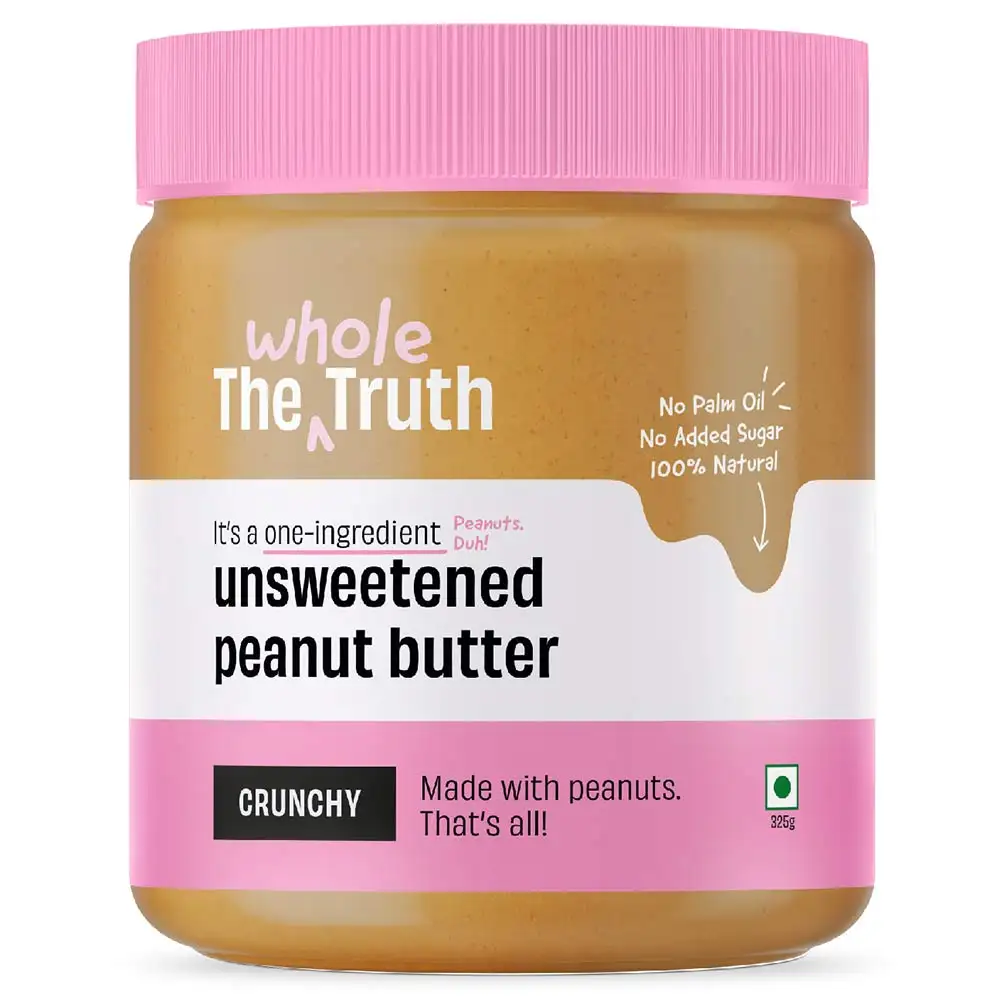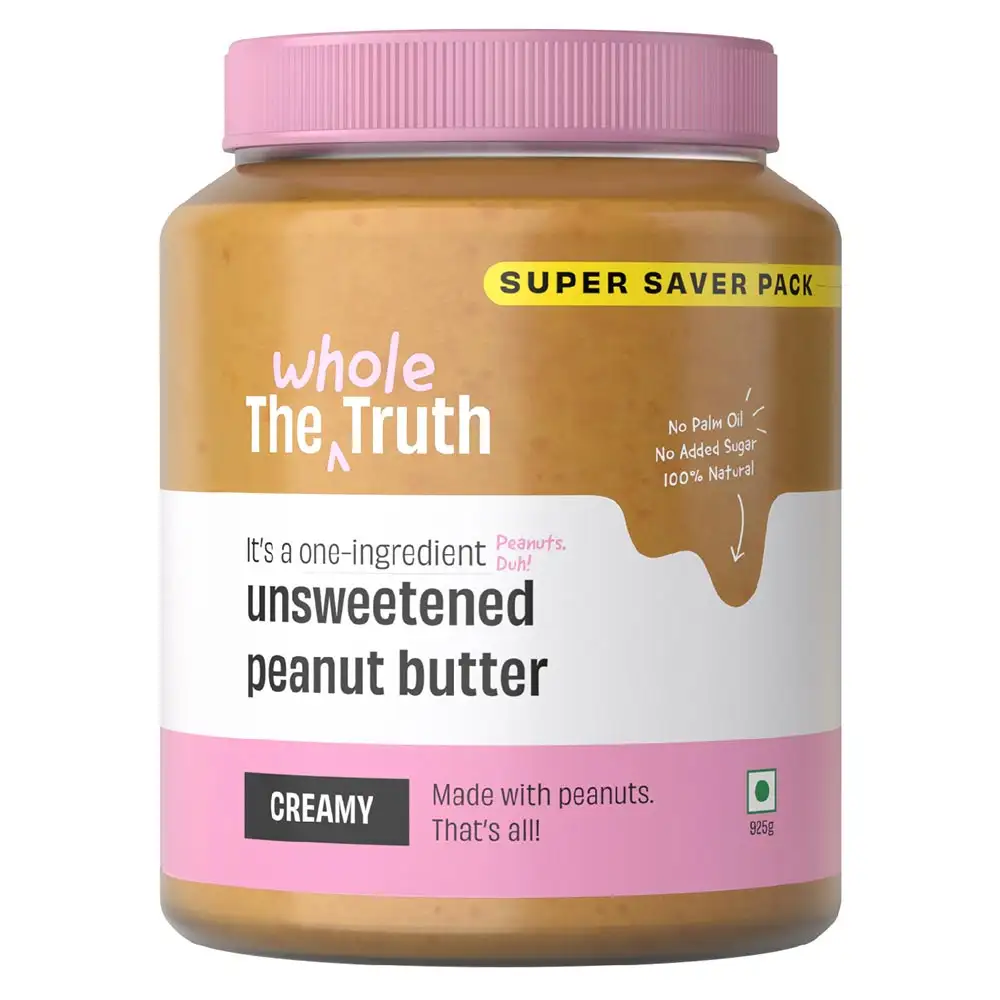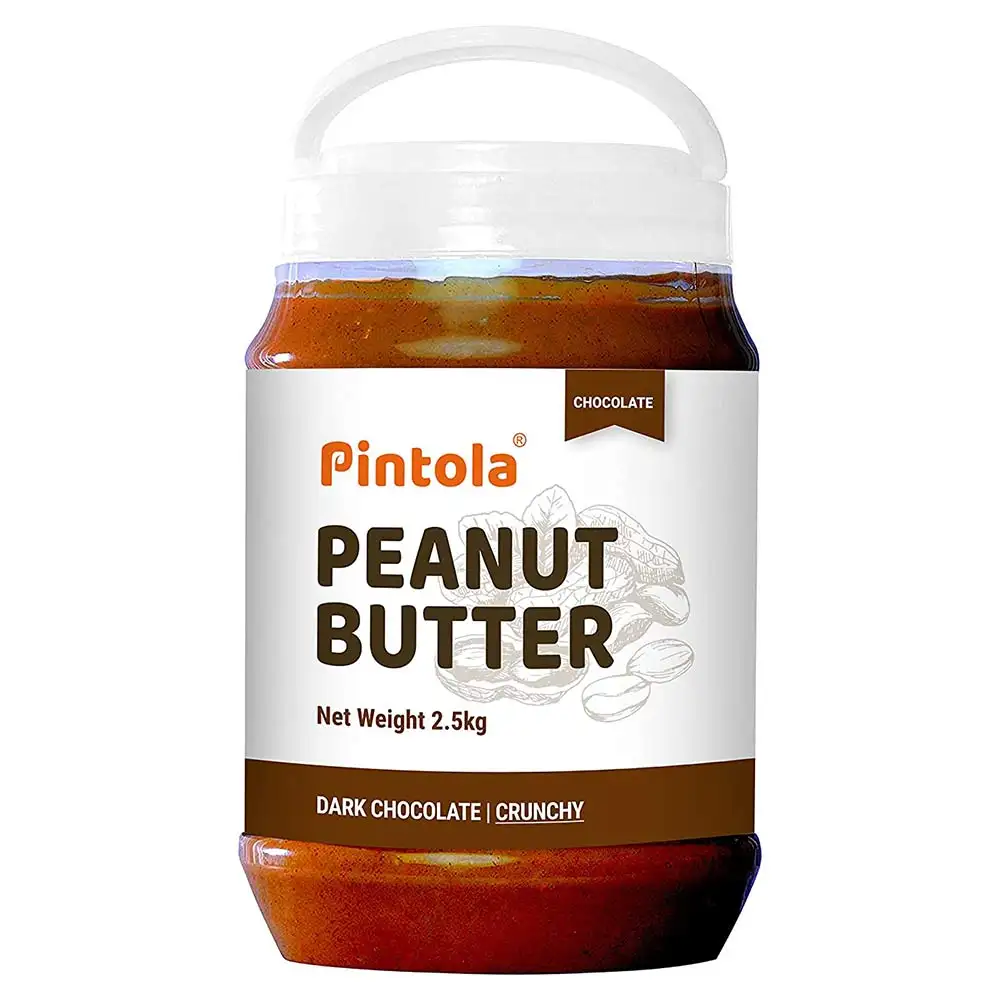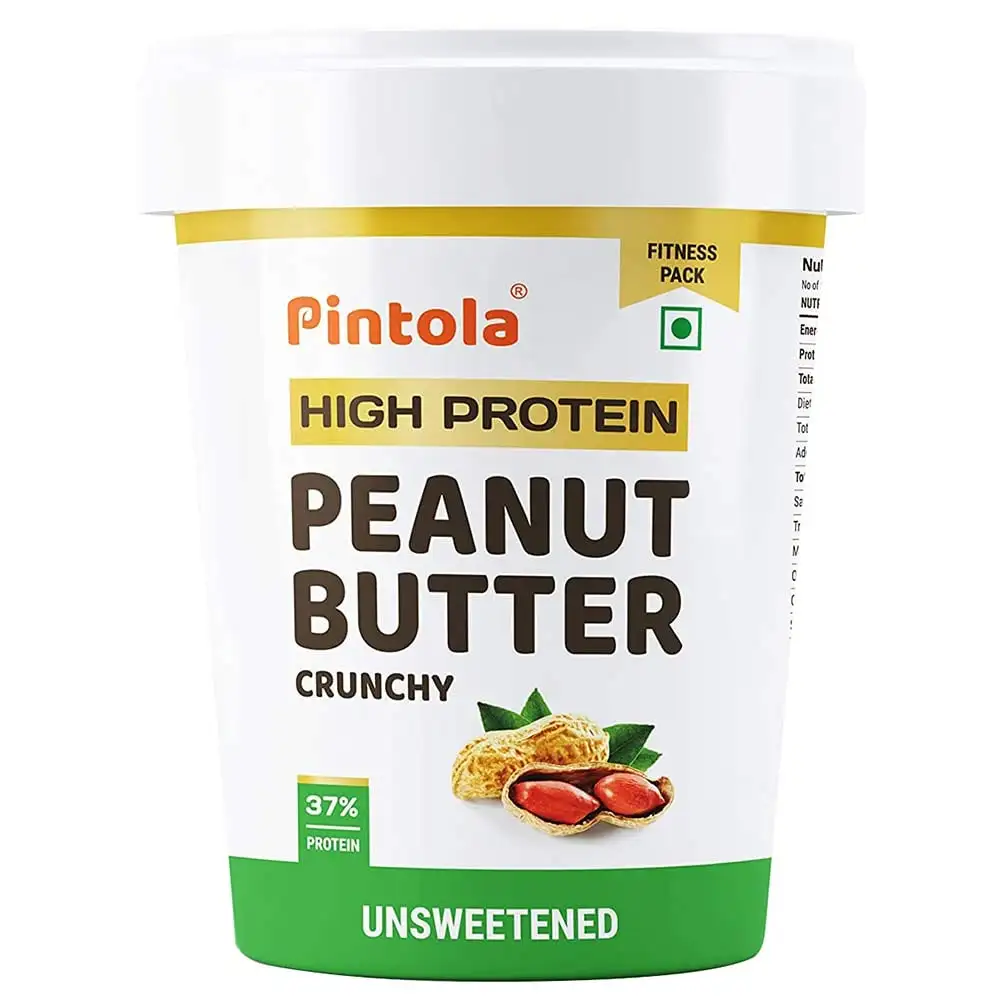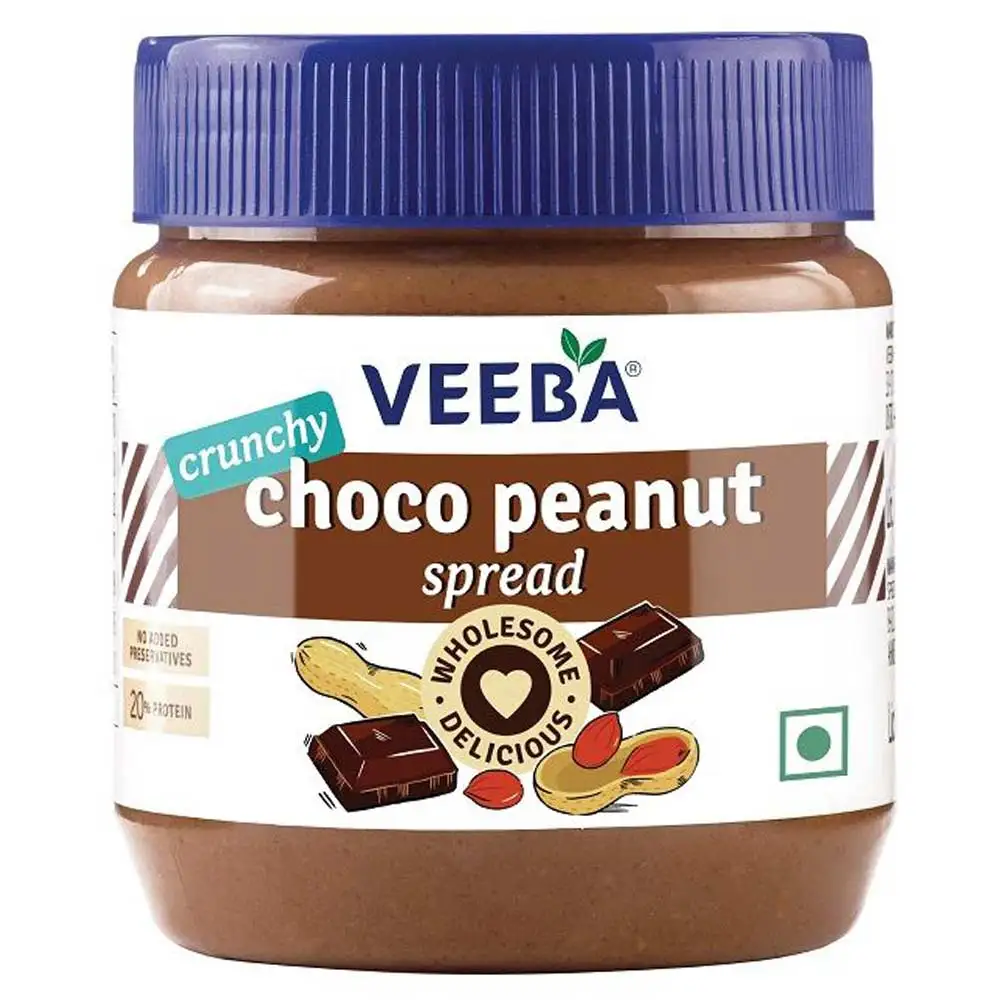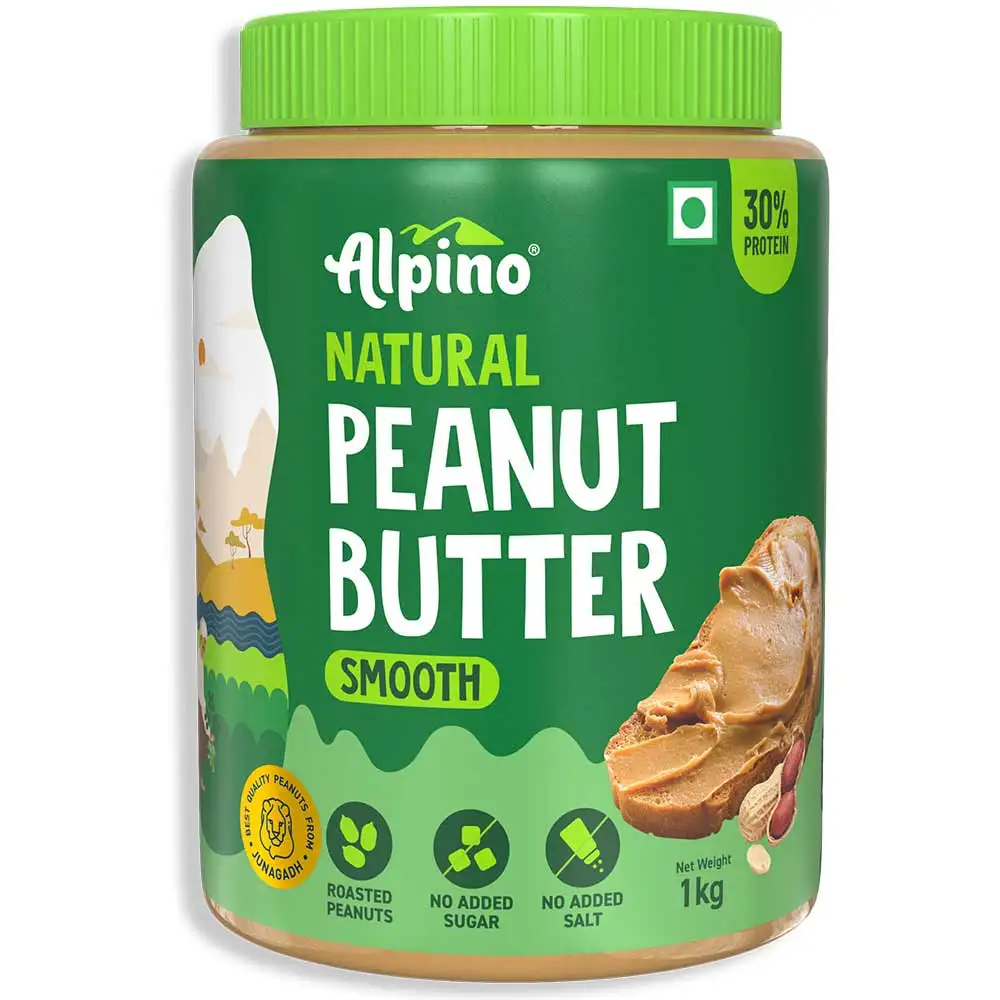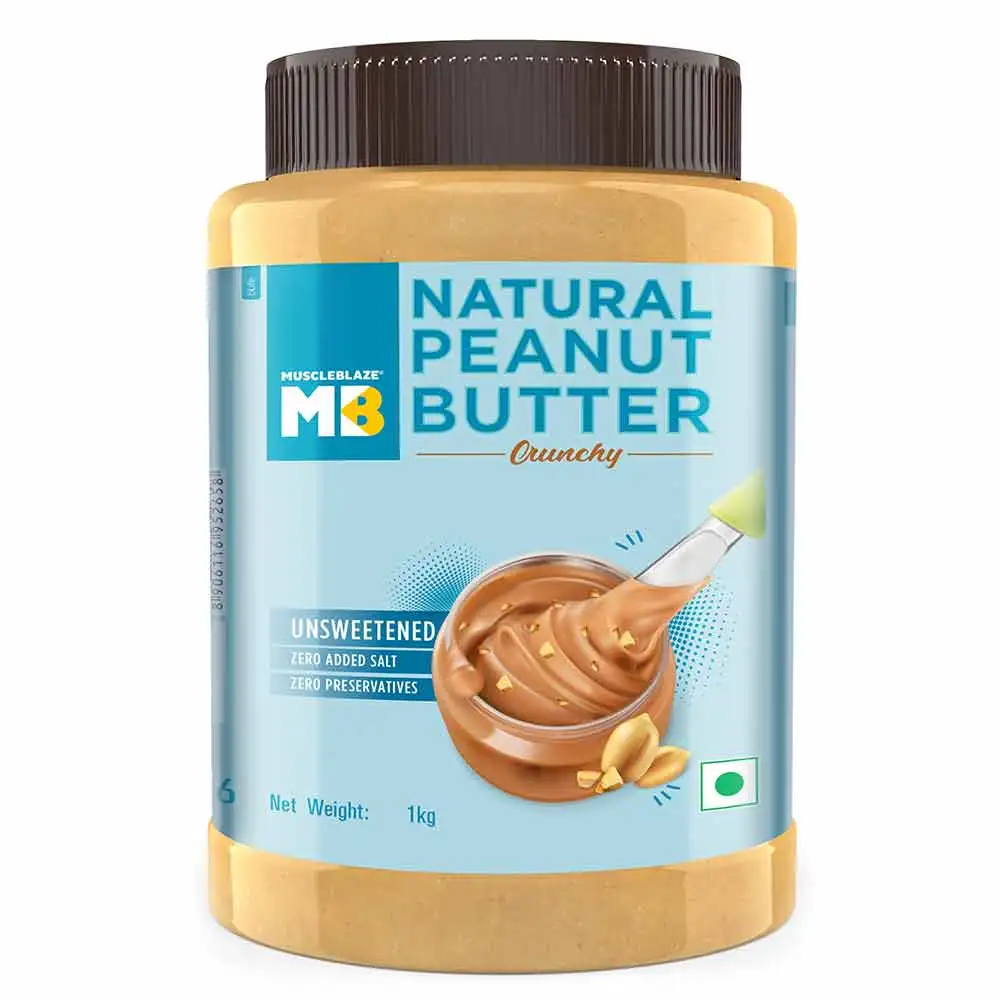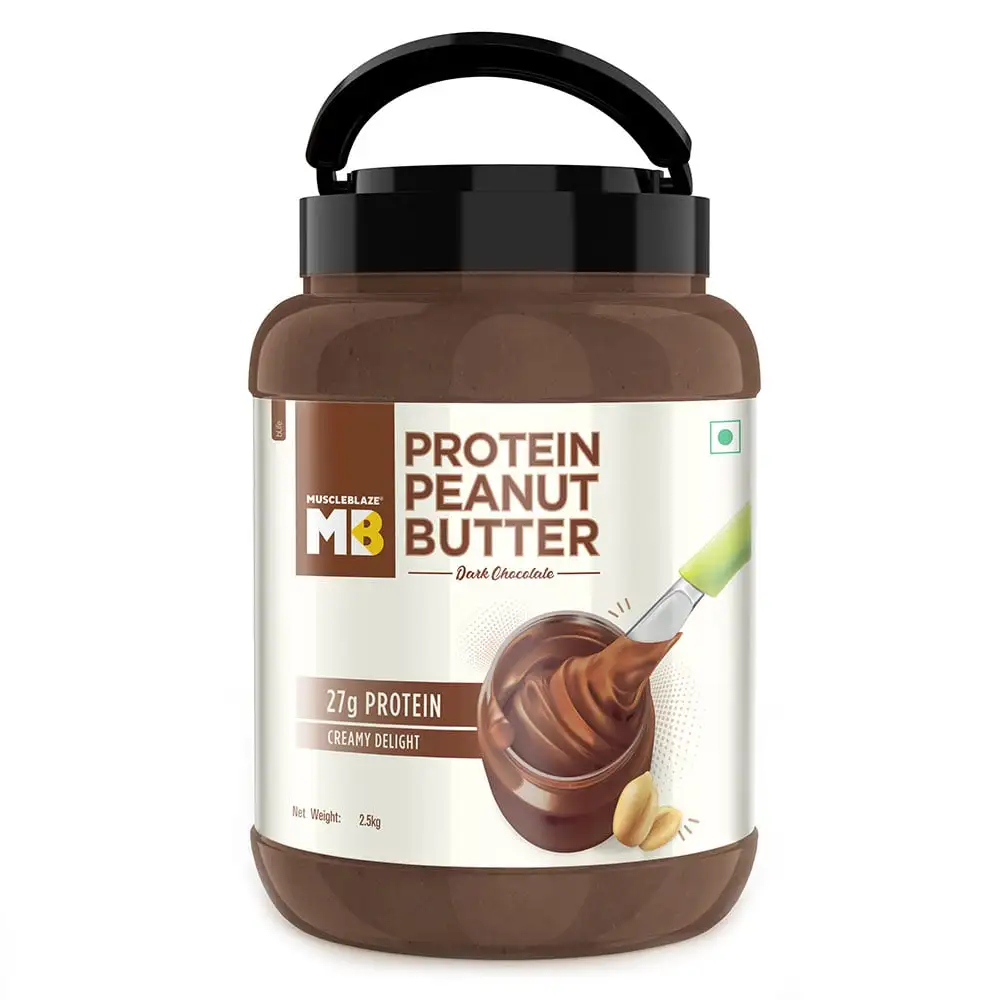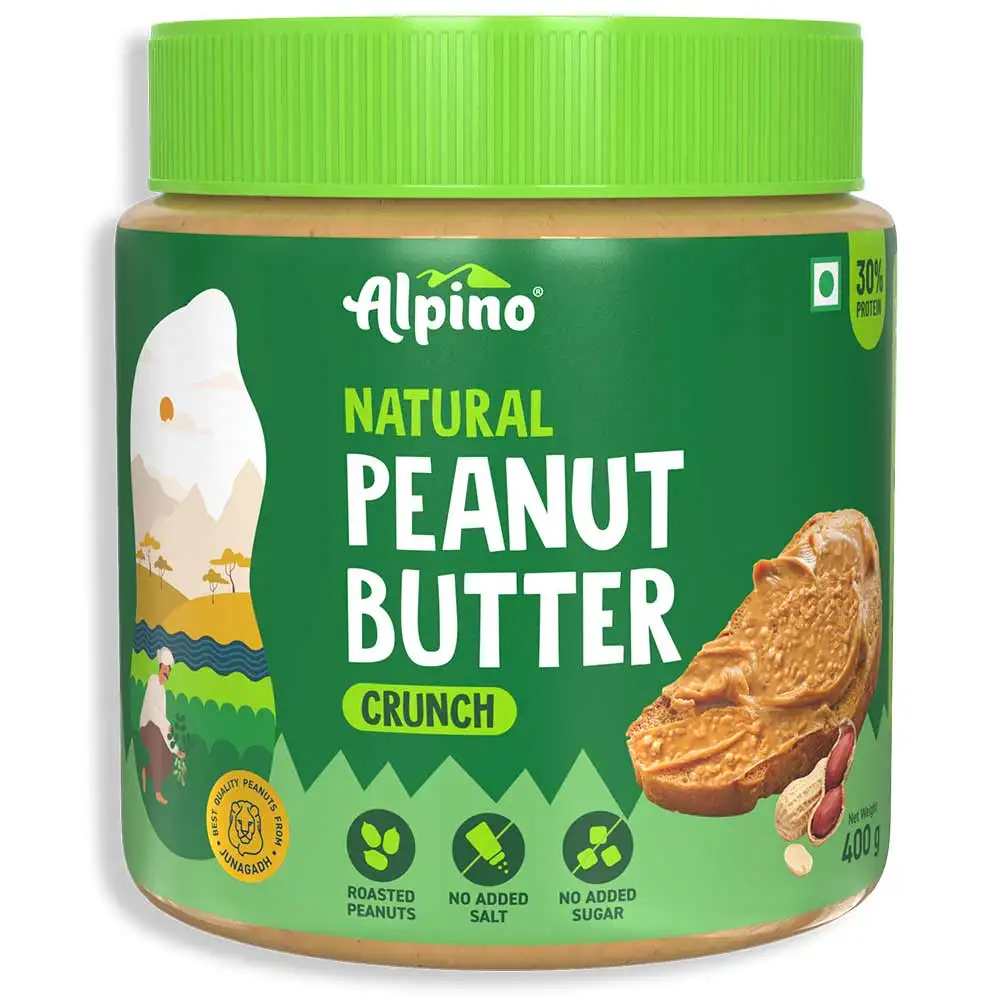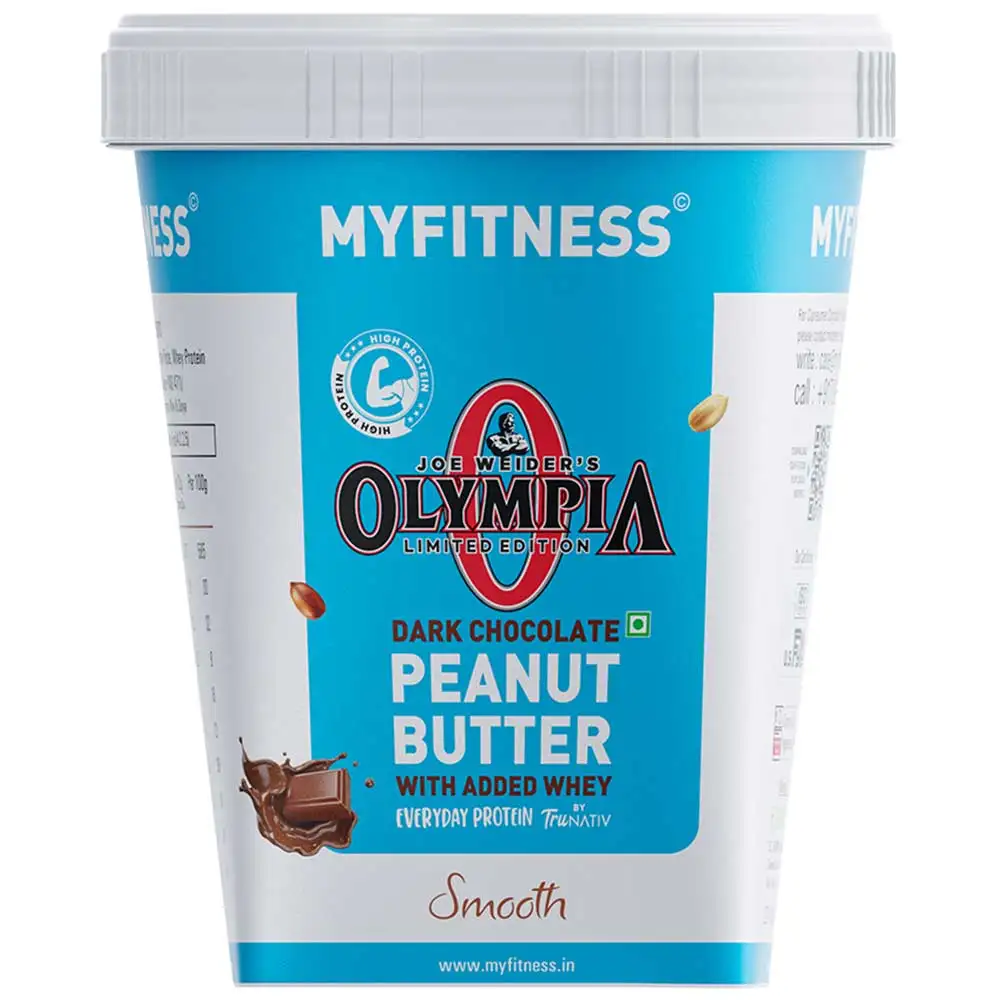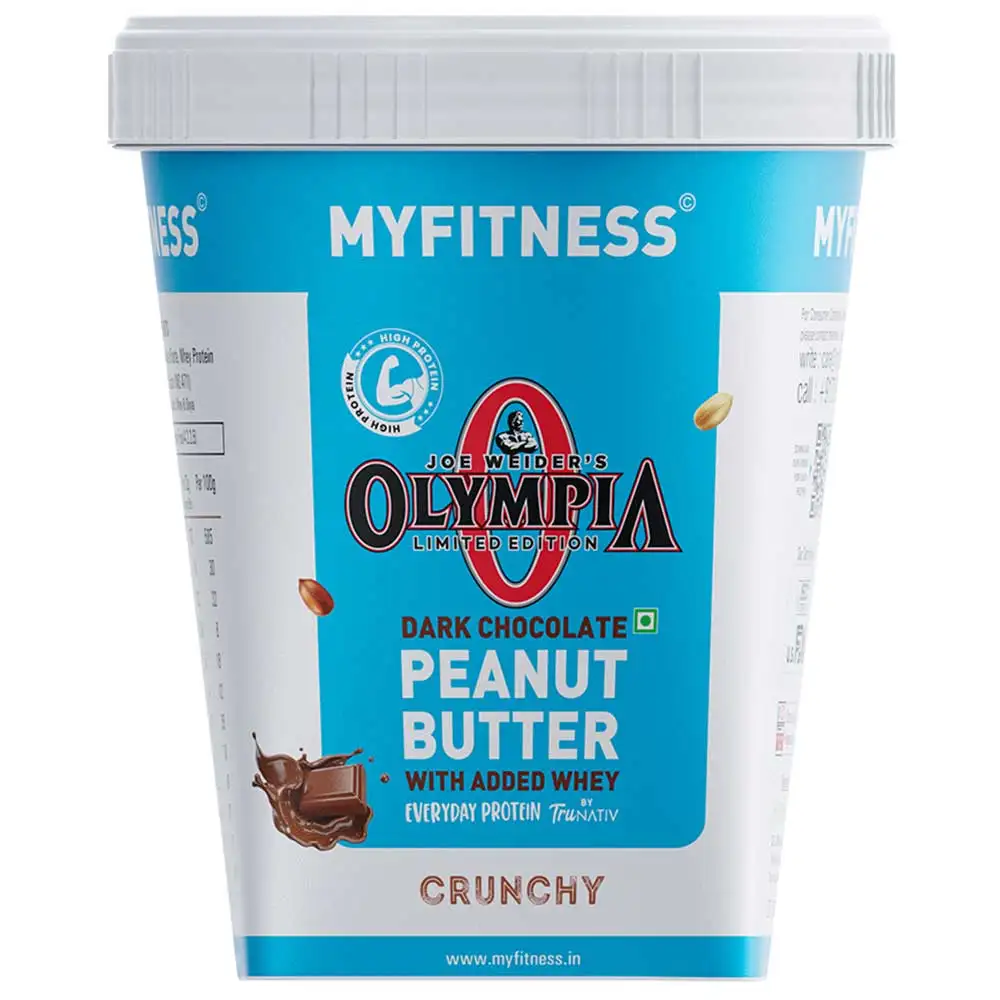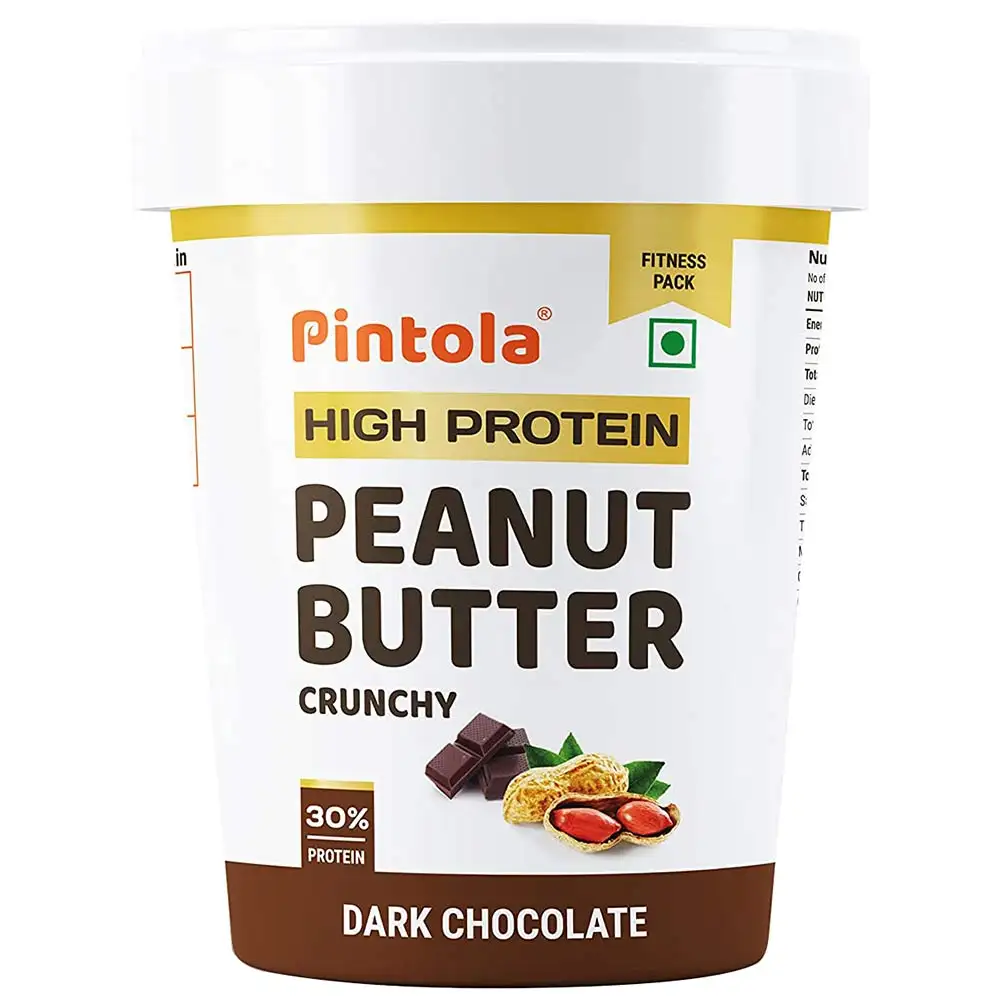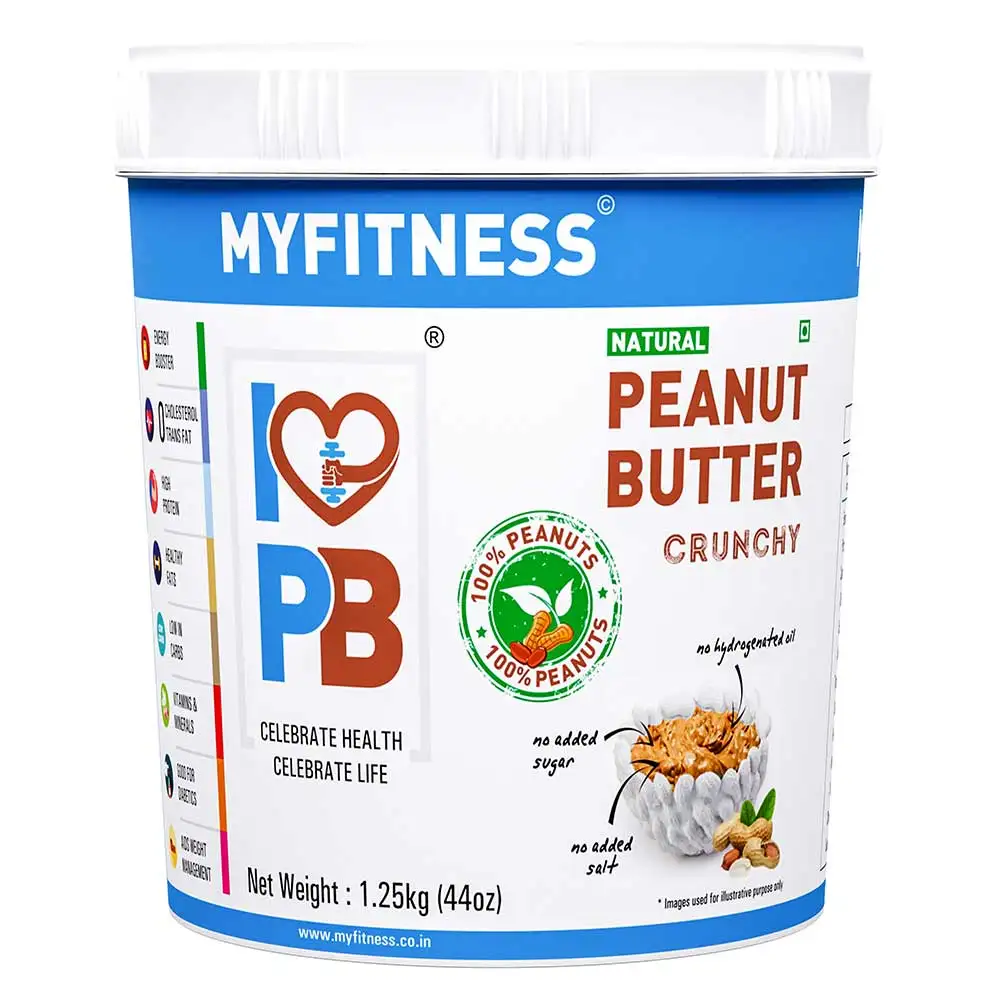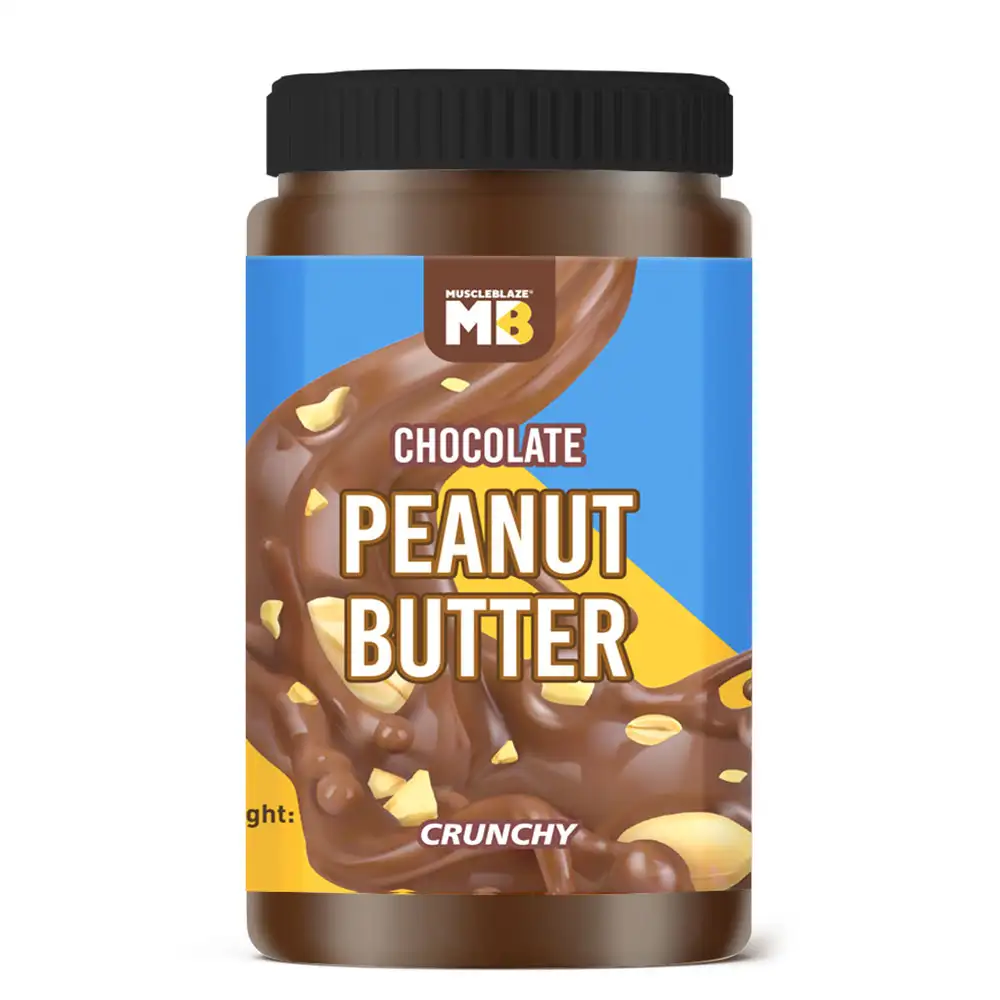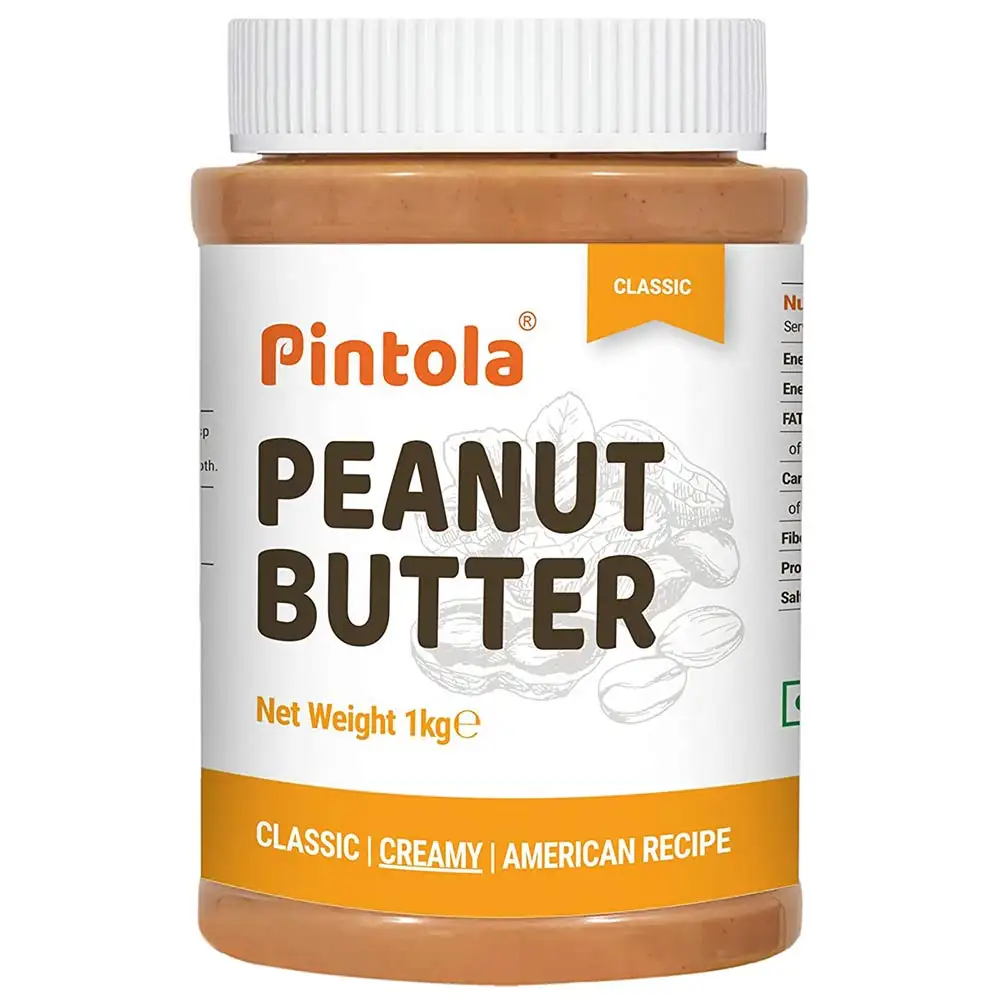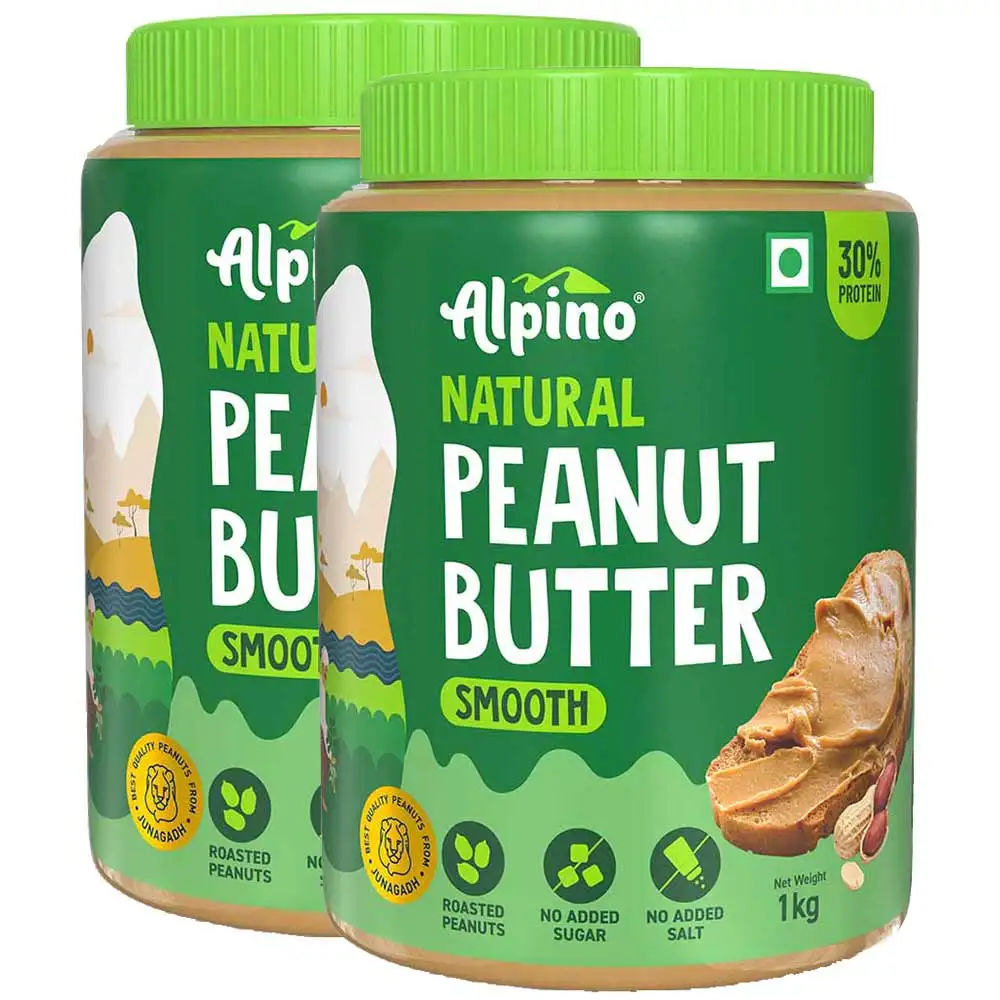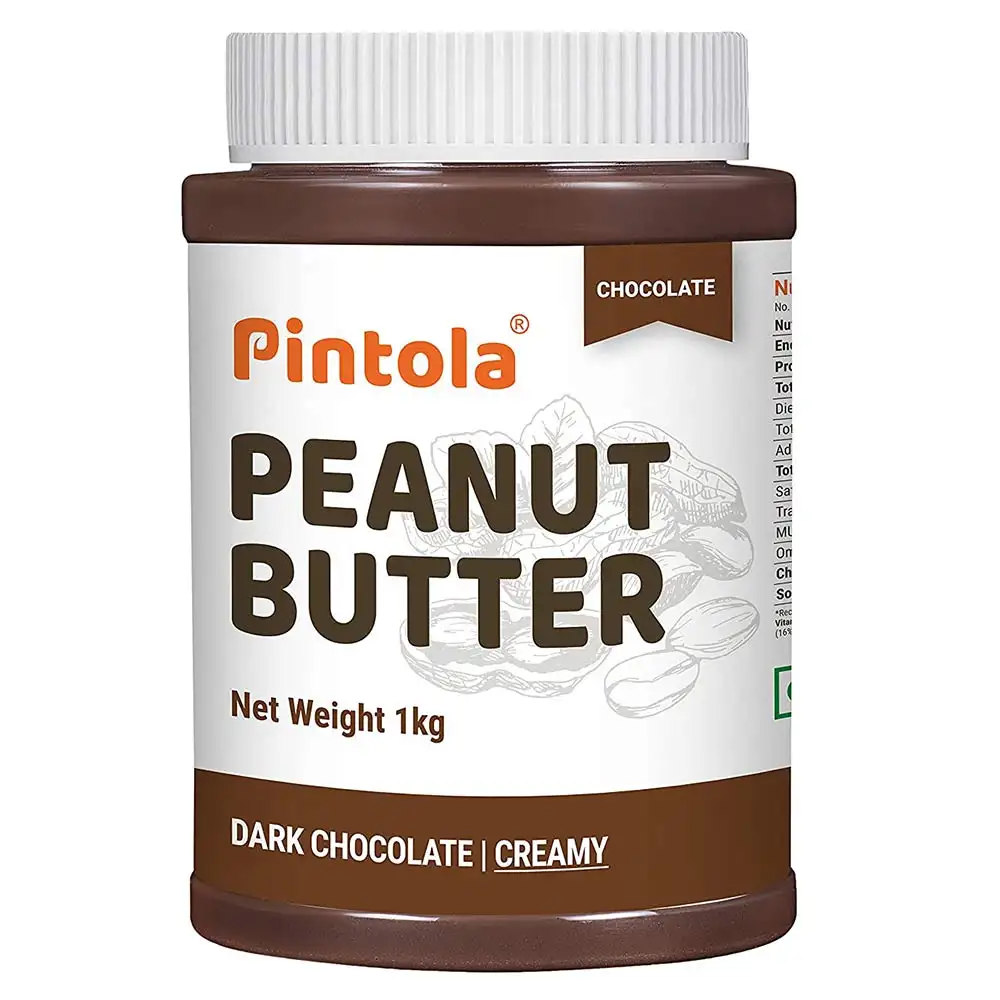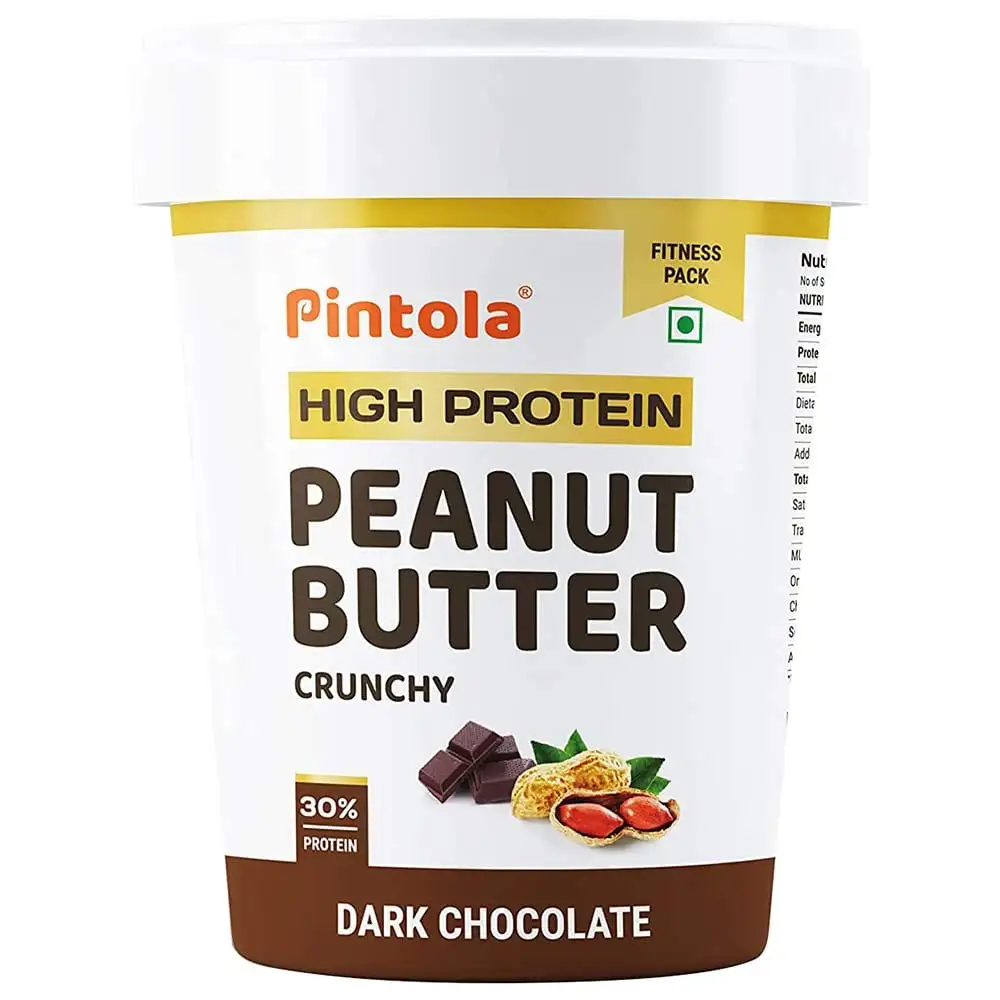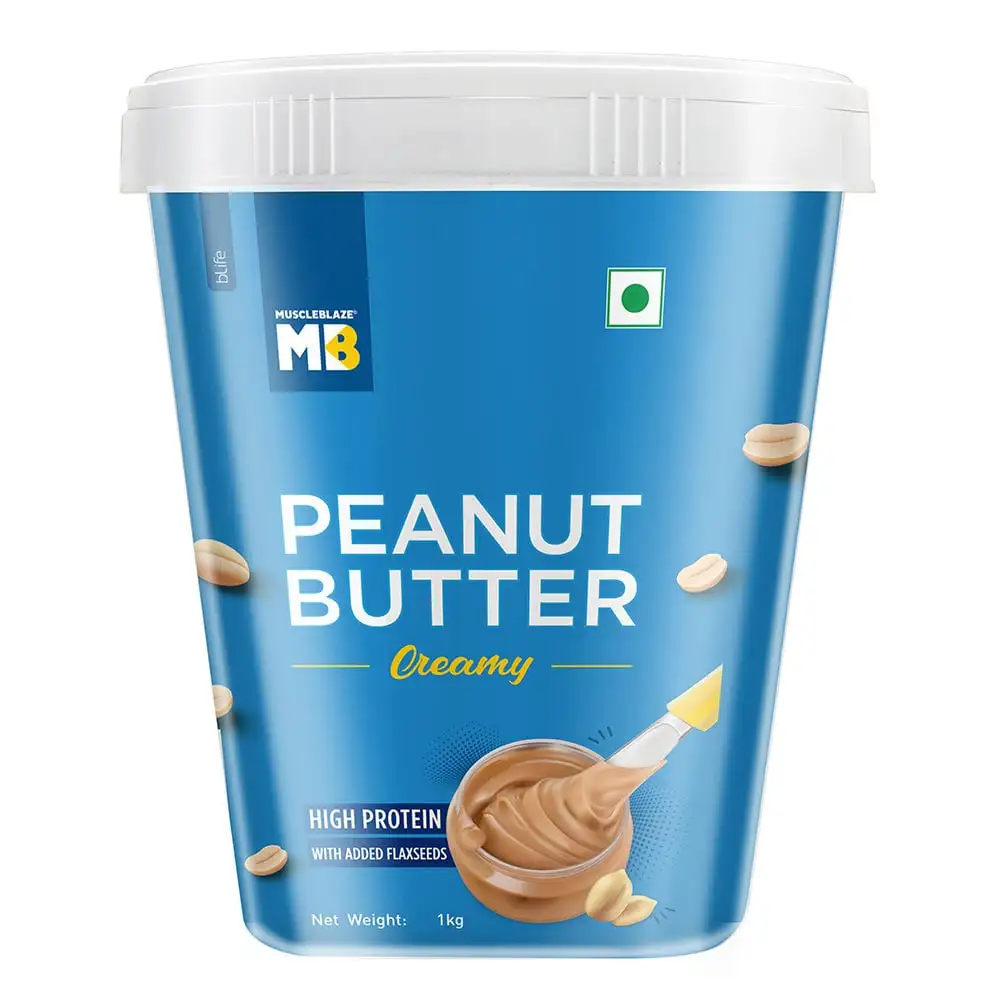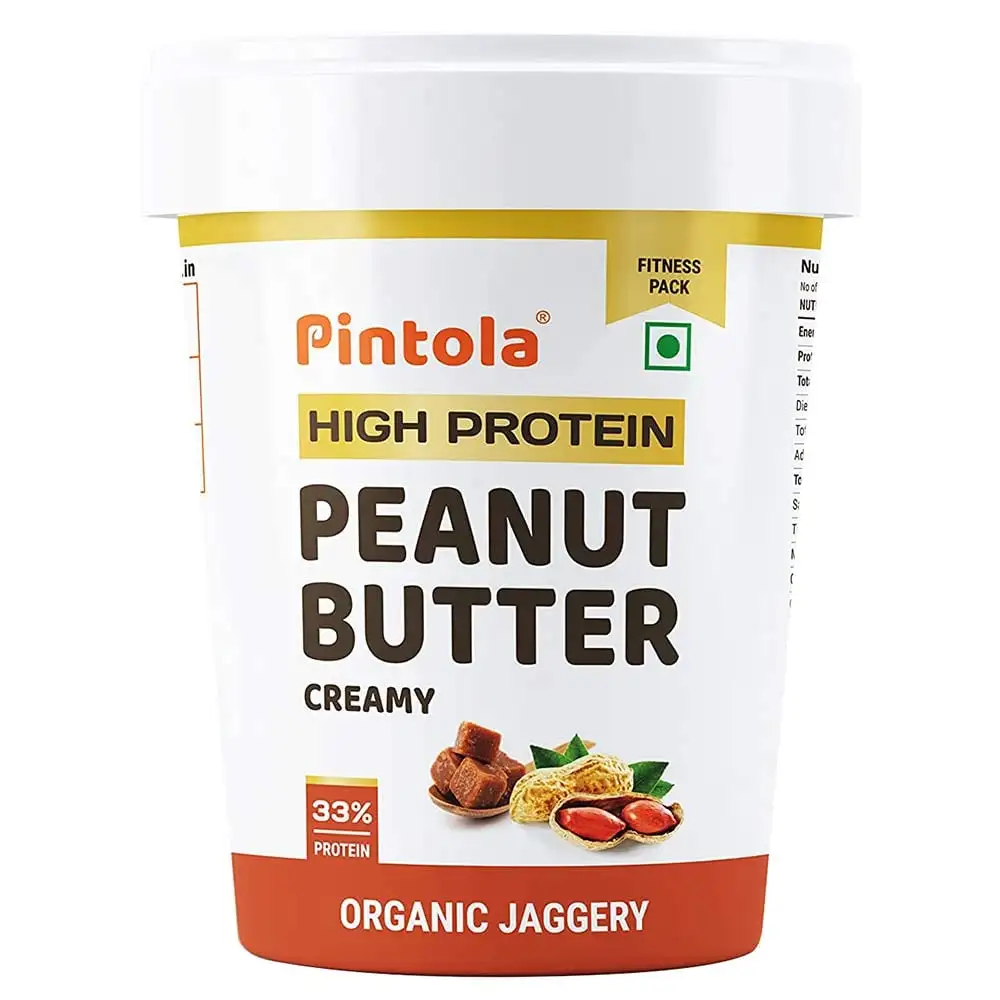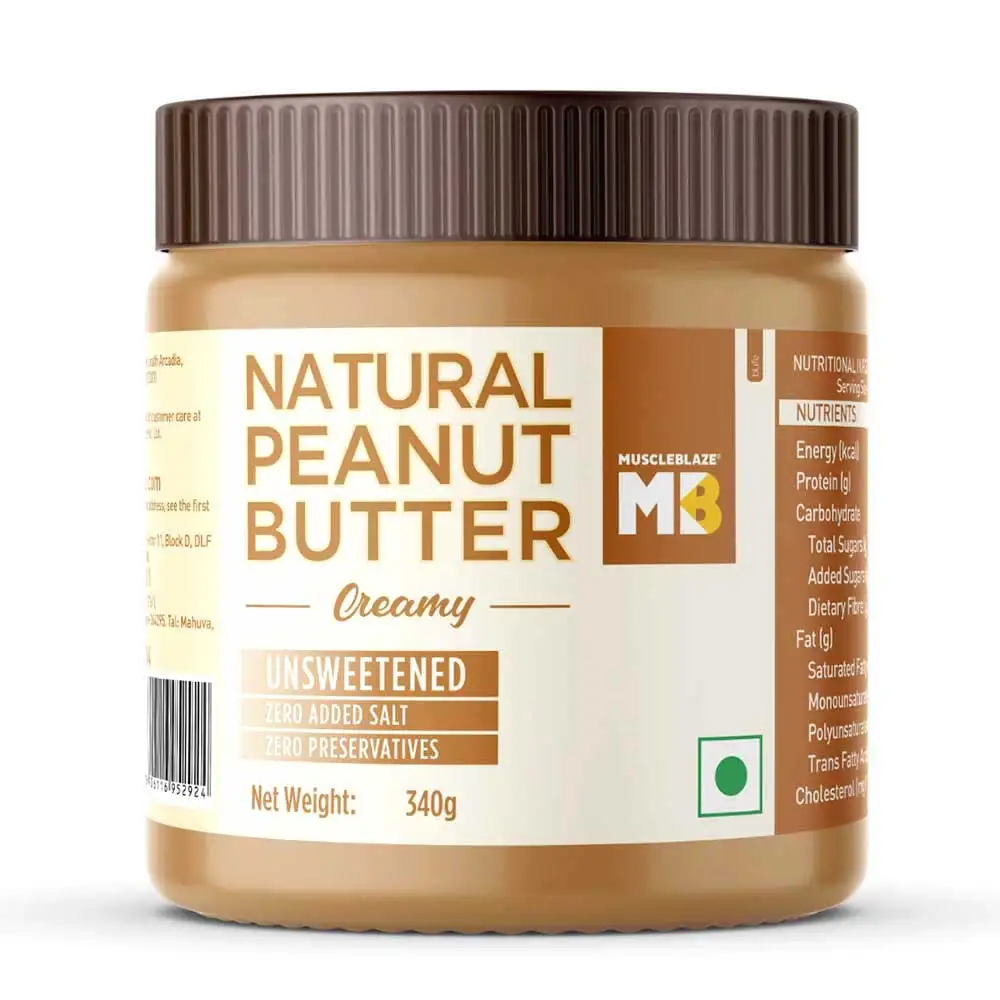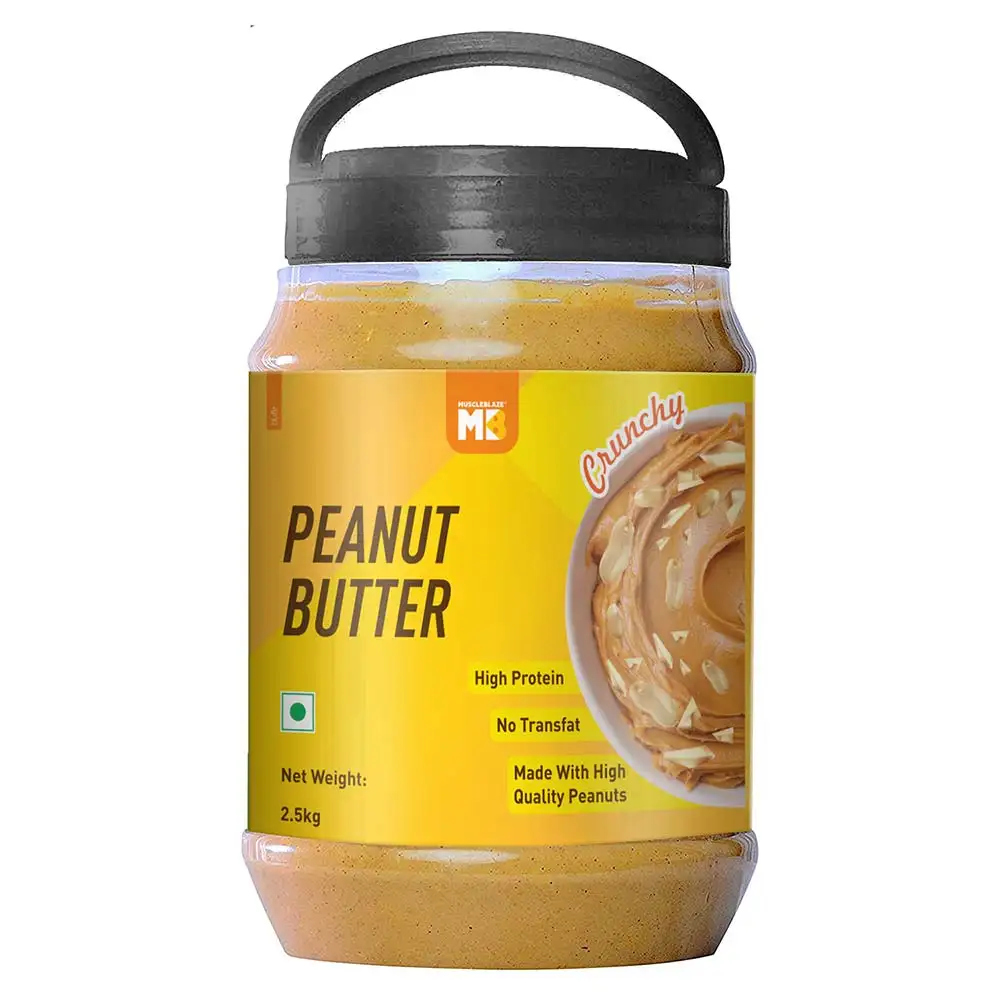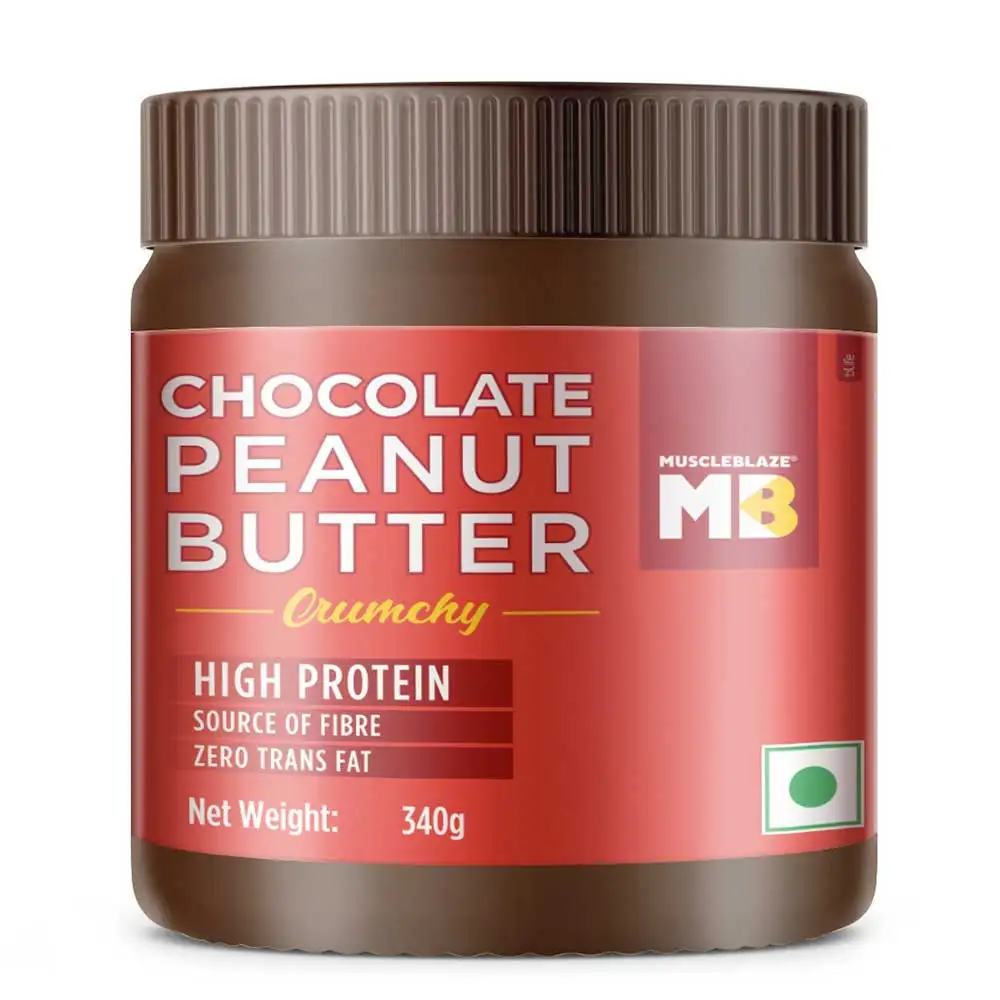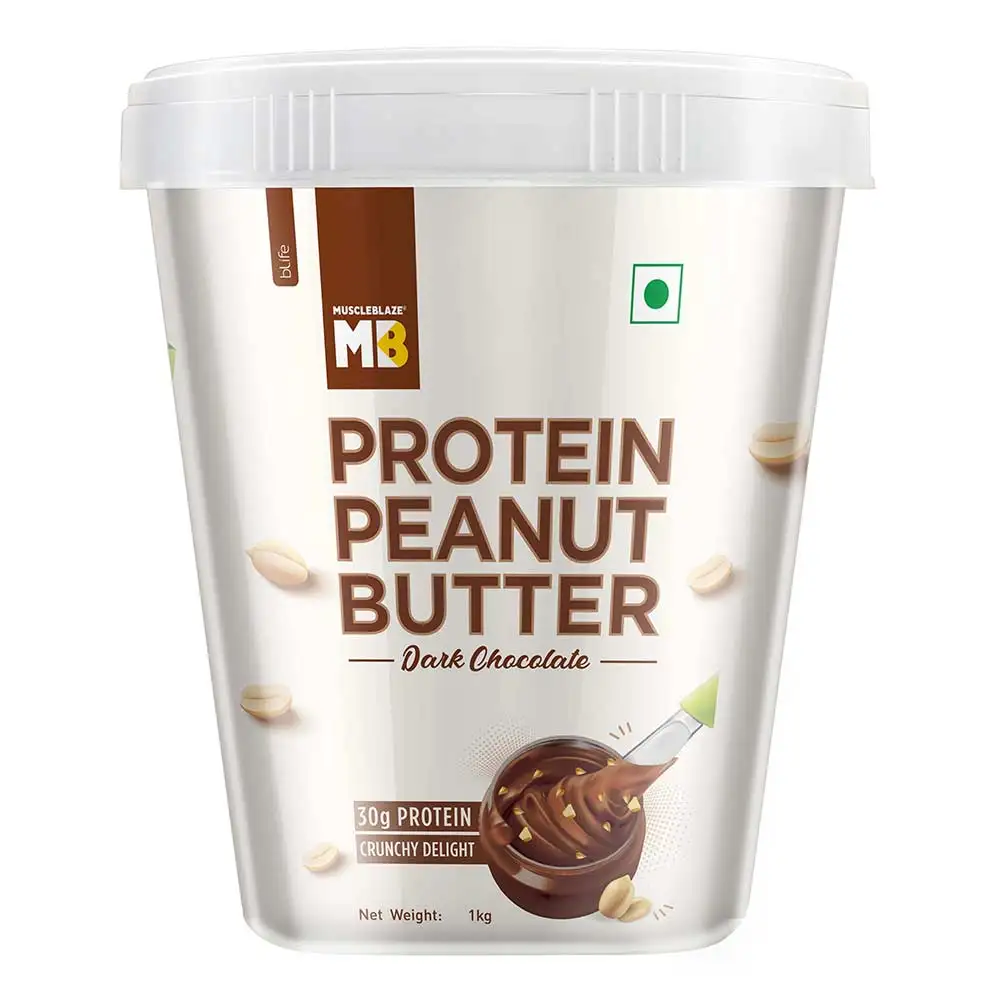Product Details
- Ingredients: Roasted peanuts, whey protein concentrate, salt, stevia, nature identical/artificial flavor (creamy)
- Specialty: High in protein, Natural, no added sugar, no preservatives
- Storage Instructions: Natural peanut oil separation may occur, stir with every use
- Store in a cool, dry place or refrigerate to preserve freshness and improve consistency
Plan A Healthy Diet With Ripped Up Nutrition Hi-Protein Peanut Butter, 0.340Kg Creamy
- Ripped Up Nutrition Hi-Protein Peanut Butter, 0.340kg Creamy is natural high protein peanut butter.
- It contains roasted peanuts, whey protein concentrate, stevia, salt, and creamy flavor.
- Ripped Up Nutrition Hi-Protein Peanut Butter, 0.340kg Creamy has no added sugar or preservatives.
- When stored natural peanut oil separation may occur. Recommended stirring before every use.
- It should be refrigerated or stored in a cool and dry place to preserve the freshness.
Benefits of Ripped Up Nutrition Hi-Protein Peanut Butter, 0.340kg Creamy
- Good for people on a weight-loss program: A weight-loss program generally administers a low carb diet. Every 100g of this crunchy peanut butter has 597 calories. The creamy peanut butter makes you feel fuller for a long time and reduces hunger cravings. The protein and fibre combination provides energy for the body for a longer period.
- Helps in bone-building: Peanut butter contains a good amount of magnesium which is highly essential for bone-building.
- Reduces the risk of diabetes: Unsaturated fats and other nutrients present in this best peanut butter increase the ability of your body to regulate insulin. By doing so it reduces the risk of diabetes.
- Facilitates intensive workout: Persons who follow a rigorous workout routine need a high-calorie intake. Protein peanut butter is the best source for such calorie requirements. The healthy fat and protein present in the peanut butter provide the energy required for the intensive workout. The calories received from the peanut butter in India are not stored in the body but are immediately utilized which enhances the energy level. So, peanut butter works as a good pre-workout fuel.
- Reduces the risk of stroke: Peanut butter is one of the best sources of potassium. The presence of potassium reduces the risk of a stroke and it also prevents osteoporosis and kidney stones.
- Helps to manage blood pressure: The high potassium content in this best peanut butter helps to reduce blood pressure and water retention.
Variants
Ripped Up Nutrition Hi-Protein Peanut Butter is available in two sizes.
- 0.340kg
- 0.850kg
The different flavors available are:
- Chocolate
- Creamy
- Caramel
- Crunchy
How to Use?
Peanut butter can be used as a spread on toast. It can be added with milkshakes and smoothies. It can also be used while baking various goodies. Peanut butter is basically an energy booster and serves as an ideal pre-workout fuel.
Where to Buy?
Healtgoodandcare is the best and most authentic portal for shopping online for nutritional supplements. If you want to avail of an array of discounts and offers with easy delivery and return policies you should be buying either the chocolate peanut butter or creamy peanut butter or caramel peanut butter or crunchy peanut butter online from Healtgoodandcare.
FAQs 1. What is Peanut Butter?
Ans: Peanut butter is a paste made from roasted peanuts. Ingredients like peanut oil, organic sugar cane, organic vanilla, sea salt, ginger, allspice, sea salt and molasses is used to get the smooth texture and flavour. It is popular all over the world and can be used as a spread on toast, bread or can be added to smoothies. 2. Why should you eat Peanut Butter?
Ans: Peanut butter is good for your health, as it is a good source of protein, unsaturated fats and contains all essential amino acids. Plus, they taste great, and have a pleasant nutty aroma. Apart from that, peanut butter offer the following benefits such as: - Works an energy booster
- Full of nutrition and makes you feel fuller longer
- Good for bone health and heart health
- Boost immunity
- May prevent cancer
3. What is the best time to eat Peanut Butter ?
Ans:Peanut butter in the morning provide energy boost in the morning. People with strict workout in the morning can have it to get that instant energy. The protein in peanuts helps the muscles to repair quickly and easily from an intense workout. Don’t just gulp the handful of peanut butter, balance it by adding peanut butter in a smoothie, protein shake or spreading it on toast. Taking peanut butter an evening snack is a great way to prevent unhealthy food cravings and giving you that energy boost when you are feeling low. You can still have some before dinner. 4. Is Peanut Butter good for weight loss?
Ans: If you are looking to lose weight, peanut butter with no added sugar, no cholesterol, no trans fat, no added salt and no hydrogenated oils is a great option. There are a lot of creative ways you use to add peanut butter to your diet. The key to consuming peanut butter for weight loss is in moderation. Make sure to have 2 or 3 servings of two tbsps of peanut butter a few times per week. 5. What is the healthiest Peanut Butter to eat?
Ans:The healthiest peanut butter to consume is the unsweetened one with healthy fats, no added sugar, no added salt, no cholesterol, no trans fat and no hydrogenated oils. Plus which is only made of 100% fine roasted peanuts like Nouriza peanut butter. Buying Guide 1. What are the signs of protein deficiency in a body?
Protein is one of the most essential nutrients that our body needs as it is the building block of skin, muscles, hormones and enzymes. Deficiency of protein can lead to various health issues. If you want your body to function properly, then you should make sure that your body gets enough protein. When a body is protein-deficient, it shows the following signs: - Loss of muscle mass- Protein aids in maintaining the density and strength of bones. If you are experiencing loss of muscle mass, muscle weakness, muscle pain means you are not giving your body enough protein.
- Hair, skin and nail issue- Protein plays a major role in keeping your hair, skin and nails healthy. Protein deficiency can cause weak, brittle nails. It impacts the skin and makes it cracked and dry. It also makes your hair fade and thin.
- Increased risk of infections and bone fractures- A low protein diet can increase the risk of infections, bone fractures, bone weakness and even osteoporosis. Protein is essential to support bone metabolism and calcium absorption.
- Fatty liver- Fatty liver is the most common symptom of protein deficiency. The condition may develop into inflammation, fatty liver disease and liver scarring, if left untreated.
- Irregular menstrual cycle- The most common reasons most of the women suffer from infertility and irregular periods because of PCOS ( Polycystic ovary syndrome). Insulin resistance affects 50% to 70% of women with PCOS. High carb diets/high sugar, low protein can contribute to insulin resistance, inflammation, fatigue and weight gain that disturb the balance of hormones that are required to sustain a regular cycle.
2. What are the major things to consider when buying a peanut butter?
Peanut butter is a powerhouse of nutrients such as folate, vitamin E, niacin and among many others. Rich in proteins and fiber and gives an instant energy to the body. Peanut butter is popularly known for boosting body immunity and metabolism. It reduces hunger cravings and prevents unhealthy food cravings. Since there are so many varieties of peanut butter out there and choosing the right one can be challenging. Here is the list of things to consider when buying peanut butter. - Look for natural, organic variety- Roasted peanuts are used to make peanut butter but along the way there are certain unhealthy ingredients are used. One thing to consider when buying peanut butter is to always choose natural, organic, non-hydrogenated peanut butter.
- No Added Sugar- Added sugar is found in most of the manufactured peanut butter to make it tastier for the consumers who prefer a more sugary version. Make sure you don’t opt for the “natural variety” that contains about 3 to 5 grams of added sugar, which is equal to 1 tbsp per 2 tbsp serving. Choose the one that is free from sugar in any form, ranging from molasses, corn syrup to stevia and honey etc.
- No Added Oils- Hydrogenated oil and palm oil in your peanut butter is a source of trans fats, which are responsible for strokes, heart diseases and other high cholesterol related issues. A healthy peanut butter variety should not contain no trace of above mentioned oils.
- Less Ingredients- Remember, the less the ingredients, the better it is. Look for the peanut butter with less ingredients, which should only include peanuts and no added preservatives in the form of excessive salt and sugar. Avoid the one with “reduced fats”.
Without a doubt peanut butter is a healthy choice but excess of everything is bad for health. So, consume it in moderation like two tablespoon serving per day. 3. What are the different types of nut butters?
Nut butters can be spread on toast, added to smoothies, protein shake and mixed into baked goods. There are various types of nut butters available on the market from cashew to walnut varieties. Let’s take a look at different types of nut butters. Almond Butter Almond butter can be used on waffles, added to your smoothies, baked goods and spread on toast. It has more calcium than peanut butter and 66% of the fat is present in the nutritious monounsaturated form. Look for the almond butter that doesn’t contain any added ingredients. It tastes creamy and fantastic. Cashew Butter Cashew butter is smooth in texture and sweet in taste. It is low in fat than other nut butters, most of its fat is monounsaturated and it is rich in copper, which is important for iron use in the body. Opt for a cashew butter that only contains salt and cashews. Walnut Butter High omega-3 content is found in walnuts. Omega-3 fats are good for heart health and also improve symptoms of arthritis. Walnut butter needs to be kept in the fridge because of the high concentration of omega-3s in it. You can spread it on toast or can combine it with your favourite peanut or almond butter for additional flavour. Peanut Butter Peanut butter is a staple food for many people around the world. It can be used in a sandwich, mixed in smoothies or cookies. 2 tbsp of peanut butter delivers 7 grams of protein, which makes it a best breakfast option. When buying peanut butter, read the label carefully as many peanut butter brands, add sweeteners like corn syrup and sugar. Go for natural varieties that contain just roasted peanuts and salt. Pistachio Butter Pistachio butter is amazing. It is lower in fat and less oily as compared to the other nut butter varieties. It is rich in copper, which is responsible for the good strength in your tissues and bones while providing you with the instant and lasting energy.
1. What are the signs of protein deficiency in a body?
- Loss of muscle mass- Protein aids in maintaining the density and strength of bones. If you are experiencing loss of muscle mass, muscle weakness, muscle pain means you are not giving your body enough protein.
- Hair, skin and nail issue- Protein plays a major role in keeping your hair, skin and nails healthy. Protein deficiency can cause weak, brittle nails. It impacts the skin and makes it cracked and dry. It also makes your hair fade and thin.
- Increased risk of infections and bone fractures- A low protein diet can increase the risk of infections, bone fractures, bone weakness and even osteoporosis. Protein is essential to support bone metabolism and calcium absorption.
- Fatty liver- Fatty liver is the most common symptom of protein deficiency. The condition may develop into inflammation, fatty liver disease and liver scarring, if left untreated.
- Irregular menstrual cycle- The most common reasons most of the women suffer from infertility and irregular periods because of PCOS ( Polycystic ovary syndrome). Insulin resistance affects 50% to 70% of women with PCOS. High carb diets/high sugar, low protein can contribute to insulin resistance, inflammation, fatigue and weight gain that disturb the balance of hormones that are required to sustain a regular cycle.
2. What are the major things to consider when buying a peanut butter?
- Look for natural, organic variety- Roasted peanuts are used to make peanut butter but along the way there are certain unhealthy ingredients are used. One thing to consider when buying peanut butter is to always choose natural, organic, non-hydrogenated peanut butter.
- No Added Sugar- Added sugar is found in most of the manufactured peanut butter to make it tastier for the consumers who prefer a more sugary version. Make sure you don’t opt for the “natural variety” that contains about 3 to 5 grams of added sugar, which is equal to 1 tbsp per 2 tbsp serving. Choose the one that is free from sugar in any form, ranging from molasses, corn syrup to stevia and honey etc.
- No Added Oils- Hydrogenated oil and palm oil in your peanut butter is a source of trans fats, which are responsible for strokes, heart diseases and other high cholesterol related issues. A healthy peanut butter variety should not contain no trace of above mentioned oils.
- Less Ingredients- Remember, the less the ingredients, the better it is. Look for the peanut butter with less ingredients, which should only include peanuts and no added preservatives in the form of excessive salt and sugar. Avoid the one with “reduced fats”.

